

Search Smartraveller

New Zealand
Latest update.
Exercise normal safety precautions in New Zealand.
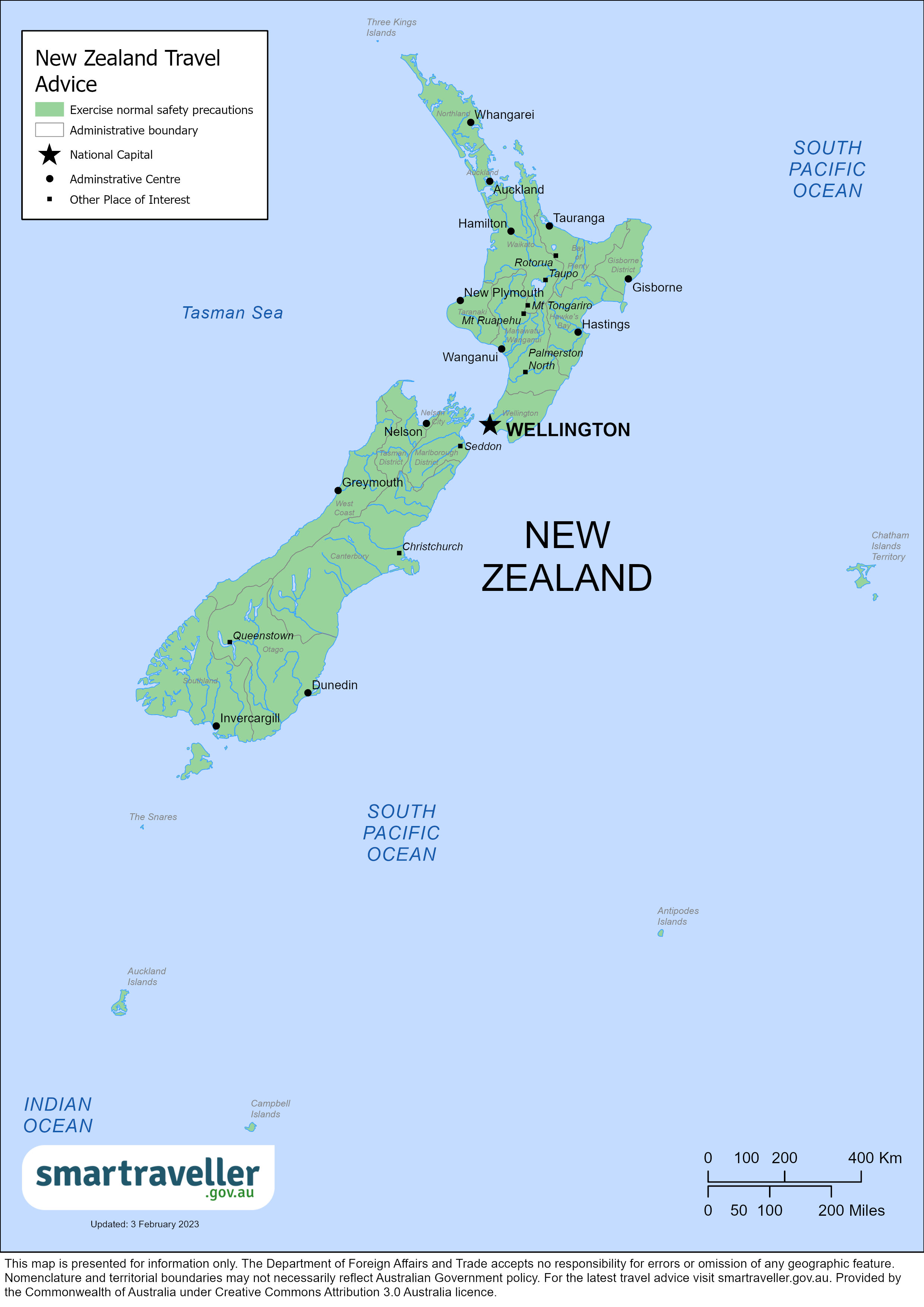
New Zealand (PDF 764.52 KB)
Pacific (PDF 1.22 MB)
Local emergency contacts
Fire and rescue services, medical emergencies.
Call 111 or contact the nearest police station.
Call 105 or go online for Police non-emergencies.
Advice levels
- Crime rates are similar to those in Australia. Thieves often target vehicles. Don't leave valuables in your car or campervan.
- Earthquakes are a constant risk. Large, damaging quakes can happen at any time. Know what to do during and after an earthquake.
- All of New Zealand's coastline is at risk of a tsunami. Know the tsunami warning signs and move to high ground immediately. Don't wait for official alerts.
- New Zealand has several active volcanoes. Volcanic alert levels may rise quickly. You may be ordered to evacuate at short notice. Stay informed and follow the advice of local authorities.
- Weather conditions can change quickly. Severe weather could leave you stranded or injured, especially in an isolated area. If you're climbing, hiking or in a remote area, register your trip with the Department of Conservation. Carry a personal locator beacon.
- Heavy rain is impacting much of the South Island and parts of the North Island, including Westland and Southland. Monitor the New Zealand Metservice for the latest information and follow the advice of local authorities.
Full travel advice: Safety
- Make sure your vaccinations are up to date before you travel.
Medical facilities and services are of a similar standard to those in Australia.
- New Zealand and Australia have a reciprocal healthcare agreement. This lets Australians access public medical facilities and care. However, there are some things it doesn't cover. Ensure you get comprehensive travel insurance.
- Following heavy rain, a precautionary boil water notice has been issued for the Franz Josef area (see 'Safety').
Full travel advice: Health
- Don't use or carry illegal drugs. Penalties may include fines and prison sentences, including for small amounts.
- Carry approved identification if you want to purchase alcohol or enter licensed premises. Approved ID includes your passport, a New Zealand driver's licence, an existing Hospitality NZ 18+ Card, or a Kiwi Access Card. An Australian driver's licence is not an approved form of ID under the NZ Sale and Supply of Alcohol Regulations.
Full travel advice: Local laws
You must complete a New Zealand Traveller Declaration Form (NZTD) before passport control on arrival. You need to answer questions about your trip and what you’re bringing into the country. You can complete it online or by using the NZTD app, there's no cost.
- Most Australian citizens don't need a visa to enter unless you have a criminal record or if you've been deported from any country. Entry and exit conditions can change at short notice. You can contact the nearest New Zealand embassy or consulate for the latest details.
- Before you travel, check Immigration New Zealand's website for current entry restrictions and requirements.
Full travel advice: Travel
Local contacts
- The Consular Services Charter details what the Australian Government can and can't do to help you overseas.
- To stay up to date with local information, follow the High Commission’s social media accounts
For consular help, contact the Australian High Commission in Wellington , or the Australian Consulate-General in Auckland.
Full travel advice: Local contacts
Full advice
Petty crime.
Crime rates in New Zealand are similar to those in Australia.
Thieves often target valuables left in cars and campervans.
Kidnapping can happen anywhere, anytime, including in destinations that are typically at lower risk.
The Australian Government's longstanding policy is that it doesn't make payments or concessions to kidnappers.
More information:
Cyber security
You may be at risk of cyber-based threats during overseas travel to any country. Digital identity theft is a growing concern. Your devices and personal data can be compromised, especially if you’re connecting to Wi-Fi, using or connecting to shared or public computers, or to Bluetooth.
Social media can also be risky in destinations where there are social or political tensions, or laws that may seem unreasonable by Australian standards.
- Cyber security when travelling overseas
Civil unrest and political tension
Demonstrations and protests.
Protests are generally peaceful. However, public protests and events that draw large groups of people can turn violent.
Follow the advice of local authorities.
- Demonstrations and civil unrest
Terrorism is a threat worldwide.
- New Zealand police
- New Zealand Security Intelligence Service
Climate and natural disasters
New Zealand experiences natural disasters and severe weather , including:
- earthquakes
- volcanic activity
- flash flooding
To protect yourself in a natural disaster:
- secure your passport in a safe, waterproof place
- follow the advice of local authorities
- keep in contact with friends and family
Monitor local media and other sources, including:
- Ministry of Civil Defence and Emergency Management
- Global Disaster Alert and Coordination System
- GetReady website (New Zealand government)
Earthquakes
Earthquakes are a constant risk in New Zealand.
Most quakes are too small or deep in the earth to feel. However, about 150 to 200 quakes are big enough to feel each year.
Large, damaging earthquakes have occurred and could happen again at any time. Aftershocks can continue for days or weeks.
When an earthquake happens, you're advised to drop, cover and hold. If an earthquake is long or strong, and you're near the coast or large body of water, you should go to higher ground immediately.
If you're indoors during an earthquake:
- move no more than a few steps to a heavy, solid object you can get underneath, and hold onto it
- don't try to run outside
- stay indoors until the shaking stops
- stay away from windows, chimneys, and shelves with heavy objects
If you're in bed:
- hold onto the bed and stay where you are
- protect your head and body with a pillow and blankets
If you're outdoors:
- move to the nearest clear spot
- keep away from buildings, trees, and power lines
- drop to the ground
If you're in a car:
- drive to a clear place away from buildings, trees, and power lines
- stay in the car with your seatbelt on until the shaking stops
If you're in a lift:
- stop at the nearest floor and get out
After the earthquake finishes:
- be aware of possible tsunami risks (see below)
- prepare for travel delays
- reconfirm your travel arrangements
- check your accommodation with travel agents and tour operators
Because of the region's earthquake risk, tsunamis could happen.
All of New Zealand's coastline is at risk of a tsunami. New Zealand is a member of the Pacific Tsunami Warning System.
The National Emergency Management Agency manages the National Tsunami Advisory and Warning Plan and issues tsunami alerts on its website. These are also broadcast by New Zealand media.
A tsunami could arrive within minutes. There may not be time for an official warning.
Move immediately to high ground, or as far inland as possible, if you're near the coast and you:
- feel a strong earthquake that makes it hard to stand up
- feel a weak, rolling earthquake that lasts a minute or more
- see a sudden rise or fall in sea level
- hear loud and unusual noises from the sea
Don't wait for official warnings.
Walk or bike if possible because of potential road congestion.
New Zealand's active volcanoes can erupt at any time. Volcanic alert levels may rise quickly. You may be ordered to evacuate at short notice.
If there's volcanic activity:
- follow the instructions and advice of local authorities
- follow evacuation orders
- take official warnings seriously
If you plan to visit active volcanoes or surrounding areas:
- monitor the GeoNet website
- get local advice first
Visit GeoNet for information about volcanic activity at:
- Mt Tongariro
- White Island
- other active volcanic sites
Severe weather
Heavy rain is impacting much of the South Island and parts of the North Island, including Westland and Southland. Monitor the New Zealand Metservice for the latest information and follow the advice of local authorities. Following heavy rain and flooding, a precautionary boil water notice has been issued for the Franz Josef area.
Weather conditions can change quickly. Severe weather can occur.
Creeks and rivers can experience flash flooding after heavy rains.
Rapid weather changes could leave you stranded or injured, particularly if you're in a remote area.
Monitor weather conditions, forecasts and warnings from Metservice .
Take extra care if you're climbing, hiking or in a remote area.
Parts of New Zealand experience bushfires in hot, dry conditions.
If there's a bushfire, follow local advice.
Adventure activities
Most people enjoy adventure activities safely in New Zealand. However, these activities carry risks.
Several serious accidents involving Australians and other travellers have occurred. People have died.
Some operators have been found to be negligent.
Safety standards can differ both between individual operators, and from standards in Australia.
If you plan to do an adventure activity:
- be aware of the risks of individual or group activities
- check the safety standards of operators
- check to see if operators meet industry standards
Safety risks can increase in severe weather and remote areas.
Before you do any adventure activities :
- make sure your travel insurance covers your planned activities
- understand what your travel and other insurance doesn't cover
- only book with operators with appropriate safety equipment and practices
- always use the safety equipment, even if others don't
If you're trekking or travelling in a remote area:
- get updates on local weather from the Department of Conservation
- check conditions with the local DOC visitor centre
- register your trip with a DOC visitor centre
- tell your family and friends your plans
- carry a personal locator beacon
- avoid creeks and rivers after heavy rains
You can hire personal locator beacons throughout New Zealand.
When you return from a hike, check in with:
- the DOC visitor centre
- your family and friends
- anyone else who knew your plans
- AdventureSmart
- Mountain Safety Council
Travel insurance
Get comprehensive travel insurance before you leave.
Your policy must cover all overseas medical costs, including medical evacuation. The Australian Government won't pay for these costs.
If you can't afford travel insurance, you can't afford to travel. This applies to everyone, no matter how healthy and fit you are.
If you're not insured, you may have to pay many thousands of dollars up-front for medical care.
- what activities and care your policy covers
- that your insurance covers you for the whole time you'll be away (including if stopovers on the way to your destination are covered)
Physical and mental health
Consider your physical and mental health before you travel, especially if you have an existing medical condition.
See your doctor or travel clinic to:
- have a basic health check-up
- ask if your travel plans may affect your health
- plan any vaccinations you need
Do this at least 8 weeks before you leave.
If you need counselling services in New Zealand, contact:
- Lifeline – 0800 543 354 or free text HELP (4357)
- Suicide Crisis Helpline – 0508 828 865 (0508 TAUTOKO)
- Healthline – 0800 611 116
- Samaritans – 0800 726 666
- General health advice
- Healthy holiday tips (Healthdirect Australia)
Not all medication available over the counter or by prescription in Australia is available in other countries. Some may even be considered illegal or a controlled substance, even if prescribed by an Australian doctor.
If you plan to take medication, check if it's legal in New Zealand. Take enough legal medication for your trip.
Carry a copy of your prescription or a letter from your doctor stating:
- what the medication is
- your required dosage
- that it's for personal use
- New Zealand Customs Service
- Medicare Australia
Health risks
Health risks are broadly similar to those in Australia.
Medical care
Medical facilities, reciprocal health care.
New Zealand and Australia have a reciprocal health care agreement . This lets Australians access public medical facilities and care.
It doesn't:
- include ongoing treatment of existing health conditions
- cover extra accommodation costs or flights for family members
- cover flights to Australia
- replace the need for travel insurance.
To access services under the agreement:
- show your current Australian passport or evidence of permanent residency
- show your valid Medicare card.
- New Zealand Ministry of Health
- Reciprocal health care agreement (Services Australia)
Accident Compensation Corporation
If you're injured in an accident, the Accident Compensation Corporation (ACC) covers the costs of hospital treatment.
The cover provided by ACC:
- offers injury cover on a 'no-fault' basis — this means accident victims don’t have a legal right to sue a third party
- ends once you've left New Zealand
- doesn't replace your need for travel insurance .
You're subject to all local laws and penalties, including those that may appear harsh by Australian standards. Research local laws before travelling.
If you're arrested or jailed, the Australian Government will do what it can to help you under our Consular Services Charter . But we can't get you out of trouble or out of jail.
Penalties for possessing and using drugs may include fines and prison sentences.
- Carrying or using drugs
Alcohol laws
You'll need photo ID to buy alcohol or enter licensed premises.
You can't use your Australian driver's licence.
Approved IDs include:
- current passport
- current New Zealand driver's licence
- Kiwi Access Card
- Approved ID
Quarantine regulations
New Zealand has strict biosecurity rules.
If you don't declare items for quarantine, you'll get an instant fine.
If you make a false statement, you'll face heavy fines and prison sentences.
Customs requirements
When you arrive, customs officers may check electronic devices they suspect are being used in criminal activity. Devices may include:
- mobile phones
- portable tablets
- hard drives
- digital cameras
Australian laws
Some Australian criminal laws still apply when you're overseas. If you break these laws, you may face prosecution in Australia.
- Staying within the law and respecting customs
Dual citizenship
New Zealand recognises dual nationality.
If you're an Australian-New Zealand dual citizen, use your Australian passport to enter and leave Australia.
- Dual nationals
Visas and border measures
Every country or territory decides who can enter or exit through its borders. Make sure you meet all entry and exit conditions. Contact NZ Immigration for details about visas, currency, customs and quarantine rules. If you don't meet the conditions, the Australian Government can't help you.
Visa conditions
Most Australian citizens don’t need a visa to enter unless you have a criminal record or if you've been deported from any country.
Australian permanent residents need to apply online for a New Zealand Electronic Travel Authority (NZeTA) to enter New Zealand. Australian citizens are exempt from this rule.
For more information refer to the NZ Government Immigration website .
If you've been:
- convicted of any crimes, or
- deported from any country
Contact a New Zealand Visa Application Centre for advice well before you travel.
New Zealand Visa Application Centre
Level 6 66 Hunter Street Sydney NSW 2000
Phone: +61 2 8278 4529 or 1800 388 718 Website: www.immigration.govt.nz Email: [email protected]
Border measures
If you are a New Zealand visa or NZeTA holder you still need to complete an NZTD.
For more information see the NZTD website .
Maritime border
New Zealand's maritime border is open to all vessels, including foreign flagged vessels, cruise ships, recreational vessels (such as yachts and small craft) and specialist vessels used in research and exploration.
For more information see the New Zealand Customs Service – Travelling to New Zealand webpage .
- Travelling to New Zealand (New Zealand Government)
- Information for visa holders (New Zealand Immigration)
Some countries won't let you enter unless your passport is valid for 6 months after you plan to leave that country. This can apply even if you're just transiting or stopping over.
New Zealand Immigration requires you to have 3 months of validity on your passport after the date you plan to leave. If you're planning to travel to another destination after leaving New Zealand, you may need more than 3 months validity on your passport after your departure date.
Some foreign governments and airlines apply the rule inconsistently. Travellers can receive conflicting advice from different sources.
You can end up stranded if your passport is not valid for more than 6 months.
The Australian Government does not set these rules. Check your passport's expiry date before you travel. If you're not sure it'll be valid for long enough, consider getting a new passport .
- NZ Immigration
Lost or stolen passport
Your passport is a valuable document. It's attractive to people who may try to use your identity to commit crimes.
Some people may try to trick you into giving them your passport. Always keep it in a safe place.
If your passport is lost or stolen, tell the Australian Government as soon as possible:
- In Australia, contact the Australian Passport Information Service .
- If you're overseas, contact the nearest Australian embassy or consulate .
Passport with ‘X’ gender identifier
Although Australian passports comply with international standards for sex and gender, we can't guarantee that a passport showing 'X' in the sex field will be accepted for entry or transit by another country.
New Zealand Immigration recognises gender 'X' on passports. If in doubt, contact the nearest embassy, high commission or consulate of your destination before you arrive at the border to confirm if authorities will accept passports with 'X' gender markers.
More information:
- LGBTI travellers
The local currency is the New Zealand Dollar ($NZ).
Declare all amounts over $NZ10,000 or equivalent on arrival and departure. This covers all forms of currency, not only cash.
ATM availability is similar to Australia.
You can use debit or credit cards in most places as you would in Australia.
Contact your bank to let them know you'll use your cards overseas.
Local travel
Driving permit.
You can drive for up to 12 months with your Australian driver's licence.
After that, you'll need to get a local licence.
- Driver licences
Road travel
Ice, snow, fog, high winds and roaming animals can cause hazardous conditions. Heavy rain can cause landslides across roads.
Outside major cities, there aren't many motorways. Overtaking opportunities are limited.
Prepare for longer travel times than in Australia.
Railway crossings don't always have barriers, particularly in country areas.
If you're driving in mountain areas or to ski fields, be aware that roads:
- are often narrow and unpaved
- may not have safety barriers
- may require you to use snow chains
- may only be accessible by 4WD
It’s illegal to use a mobile phone while driving, but there is an exemption for 111 calls in genuine emergencies. Hands-free devices and 2-way radio are permitted.
If you plan to drive in New Zealand:
- learn the local road rules before driving
- be careful if there's ice, snow, fog or high winds
- check for road closures and warnings with the New Zealand Transport Agency
- equip yourself for current and possible weather conditions
- Driving or riding
- Driving in New Zealand
Motorcycles
Make sure your travel insurance covers using a motorbike, quad bike or similar vehicle.
Always wear a helmet.
Taxis and rideshares are generally reliable. The standards are similar to Australia.
The New Zealand Transport Authority regulates taxis and rideshare apps.
Public transport
Buses, trains and ferries operate throughout New Zealand. State-run services are also regulated by the New Zealand Transport Authority.
Take care of your belongings on public transport.
- Transport and getting around safely
Several international cruise lines stopover in New Zealand.
- Going on a cruise
DFAT doesn't provide information on the safety of individual commercial airlines or flight paths.
Check New Zealand's air safety profile with the Aviation Safety Network.
Emergencies
Depending on what you need, contact your:
- family and friends
- travel agent
- insurance provider
Always get a police report when you report a crime.
Your insurer should have a 24-hour emergency number.
Consular contacts
Read the Consular Services Charter for what the Australian Government can and can't do to help you overseas.
Australian High Commission, Wellington
72-76 Hobson Street Thorndon Wellington, New Zealand
Phone: +64 4 473 6411 Fax: +64 4 498 7103 Website: newzealand.highcommission.gov.au Facebook: Australia in New Zealand Twitter: @AusHCNZ
Australian Consulate-General
Level 7, HSBC Tower 186-194 Quay Street Auckland City, New Zealand
Phone: +64 9 921 8800 Fax: +64 9 921 8820
Check the High Commission website for details about opening hours and any temporary closures.
24-hour Consular Emergency Centre
In a consular emergency, if you can't contact an embassy, call the 24-hour Consular Emergency Centre on:
- +61 2 6261 3305 from overseas
- 1300 555 135 in Australia

Travelling to New Zealand?
Sign up to get the latest travel advice updates..
Be the first to know official government advice when travelling.
- aid.govt.nz
- mfat.govt.nz
- NZ Embassies

Official advice for New Zealanders living and travelling overseas
- Before you go
- Quick checklist and tips
- Disability information
- Dual Citizenship
- Going to Australia?
- LGBTQIA+ travellers
- Staying healthy while travelling
- Passports and visas
- Solo travellers
- Travel insurance
- Travelling with a criminal conviction
- Work and income benefits
- Travel advisories
- By destination
- Central Asia
- Central/South America
- Travel tips - travel to Europe
- Middle East
- North America
- Travel tips - travel to the United States
- South East Asia
- About our advisories
- Travel advisory risk levels
- News features
- When things go wrong
- Arrest and detention
- Contingency planning for New Zealanders overseas
- Financial difficulties
- Hostage taking and kidnapping
- Illness and injury
- Internet dating scams
- Internet fraud and international scams
- Large-scale emergency
- Lost, stolen or damaged passport
- Missing persons
- Nuclear incident
- Victims of crime
- Family issues
- Child abductions
- Combating sex crimes against children
- Inter-country adoptions
- Travelling with children
- Our services
- New Zealand embassy locator
- Travel advisories /
Travel advisories by destination
Page updated:9/12/13 Print page -->
Find a travel advisory using the alphabetical list below.
Register/update travel plans
Subscribe to travel advisories.
Top of page
Latest travel advisory updates
- Israel and the Occupied Palestinian Territories - Reviewed 14 April 2024
- Türkiye - Reviewed 11 April 2024
- Chile - Reviewed 11 April 2024
- Poland - Reviewed 9 April 2024
- Lebanon - Reviewed 28 March 2024
- Argentina - Reviewed 27 March 2024
- France - Reviewed 27 March 2024
- Iran - Reviewed 26 March 2024
register-your-travelRegister/update your travel plans
Travelling or living overseas? Register with us so we can send you important information following an emergency.
- Create registration
Other pages in this section:
Ministry of Foreign Affairs and Trade 195 Lambton Quay Private Bag 18 901 Wellington 5045 New Zealand
- About this site
- Accessibility
Covid-19 travel safety and information
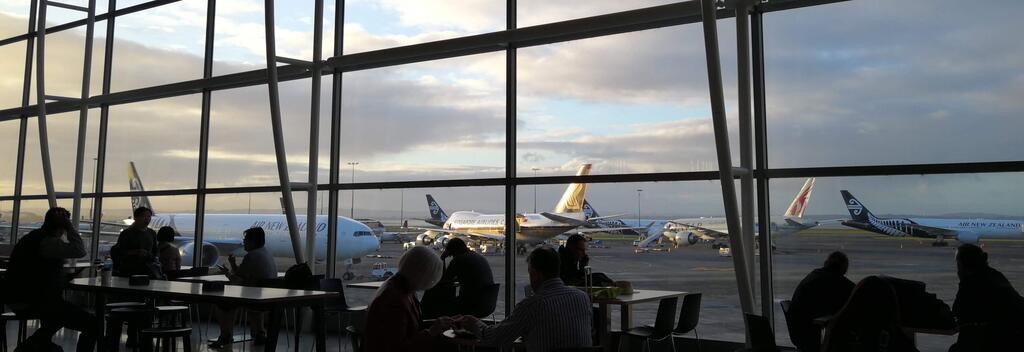
Know what to expect while travelling and follow some simple guidelines to stay safe in New Zealand.
On this page, you'll find helpful information on what you need to know:
Before travelling to New Zealand
- When in New Zealand
Leaving New Zealand
1. check your eligibility.
Before planning your travel to New Zealand, make sure you are eligible for travel, meet the visa requirements and have taken the right steps.
Everyone entering New Zealand needs to complete a New Zealand Traveller Declaration (NZTD) (opens in new window) including babies and children. It’s free and you can complete it on the NZTD website or by downloading the NZTD app ahead of your travel.
2. New Zealand’s vaccination requirements
COVID-19 vaccination and testing requirements for all travellers arriving in the country, including air crew, are no longer required.
However, all travellers are strongly encouraged to remain up to date with their vaccinations before travelling to New Zealand. Vaccination remains a significant tool for preventing infection, reducing COVID-19 symptoms and severe illness.
3. Pre-departure test
To enter New Zealand, travellers no longer need to get a pre-departure test.
4. Other things to consider before leaving
For peace of mind during your trip in New Zealand, you may also want to consider medical and travel insurance.
When you're in New Zealand
Once you arrive in new zealand.
Antigen tests
Travellers entering New Zealand do not need pre-departure tests or proof of COVID-19 vaccination to enter New Zealand. Check with your travel provider as they may still require proof of vaccination. If you have COVID-19 symptoms when you arrive in New Zealand, it is recommended to take a rapid antigen test (RATs). COVID-19 tests are free and widely available in New Zealand. Find more information on how to get a free RAT or PCR test (opens in new window) . Find more information on taking your test (opens in new window) .
COVID-19 safety practices in place
With COVID-19 case numbers falling, a highly vaccinated population, and increased access to antiviral medicines to treat COVID-19, New Zealand has removed most COVID-19 restrictions. It is still recommended to practice healthy habits when travelling around New Zealand.
Practice healthy habits
- While travelling around New Zealand, you should try to physically distance yourself in airports or busy transport hubs.
- Wearing a face mask is no longer required, although masks are still encouraged in some places such as hospitals.
- Find further information on face mask requirements (opens in new window) here.
What to do if you develop symptoms
- Find a COVID-19 testing centre (opens in new window) in your current location
- Order a rapid antigen tests (RATs) home testing kit
- Isolate for seven days. Find more information on self-isolation requirements (opens in new window) .
- Find more information on what to do if you test positive while travelling (opens in new window) .
Helpful links
- New Zealand emergency information and numbers
- List of public hospitals in New Zealand (opens in new window)
- Testing centre locations (opens in new window) across New Zealand
Check entry requirements
The country you are travelling to may have entry requirements in place. Be sure to check the requirements of the country you are travelling to.
- the official website of the country you wish to enter
- that country’s diplomatic representative in New Zealand
- More information if you require a pre-departure test before leaving (opens in new window) New Zealand
- List of testing centre locations (opens in new window) in New Zealand
More information on travelling to NZ
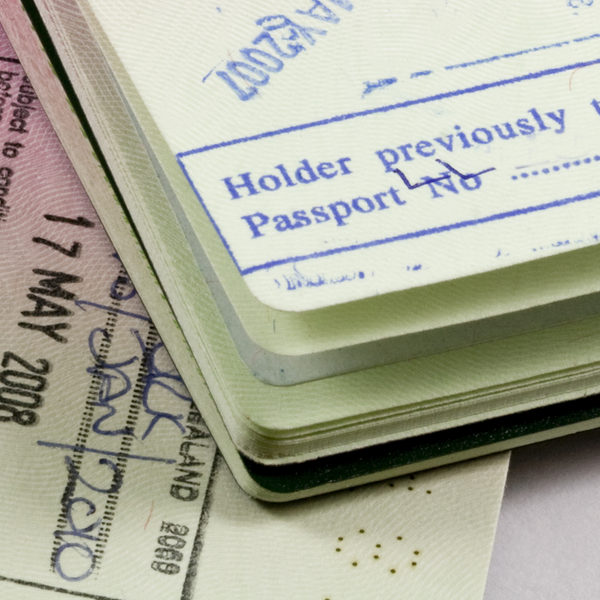
Visas and entry requirements long-arrow-right
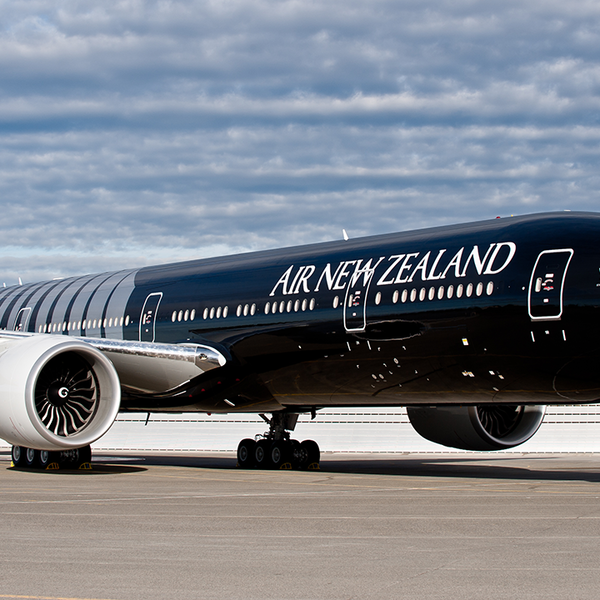
Flights to New Zealand long-arrow-right
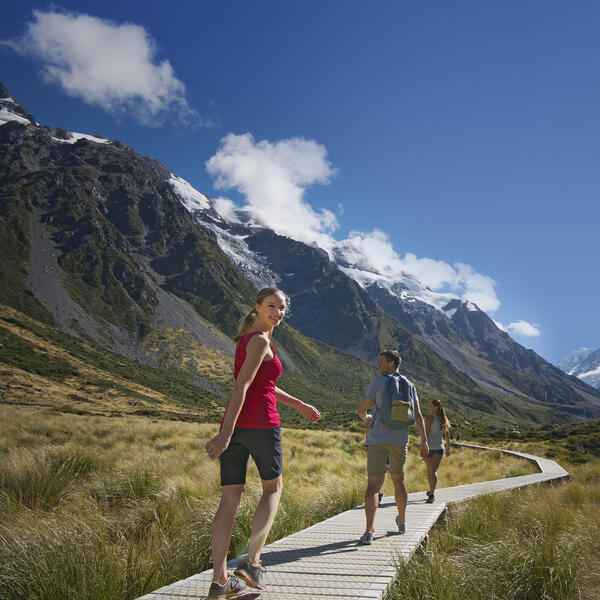
Travel agents and agencies long-arrow-right
Before you travel
Avoid surprises — before you go, find and check your passport, pay your fines and check if there are any special travel requirements for the countries you’re visiting.
Documents you’ll need to leave NZ
You’ll need a passport. If your passport is damaged or close to expiring, you might not be allowed to enter some countries.
Check your passport is valid
The name in your passport must match your tickets and your officially registered name.
Before you travel, check if the country you’re visiting has special rules.
Check visa and entry requirements for your destination
Travel advisories
Travel advisories from the NZ government cover security and safety concerns in 137 places around the world.
The SafeTravel website has tips to help you stay safe overseas, what to do if things go wrong, and how the New Zealand government can or cannot help.
Register with SafeTravel
SafeTravel is the official registration facility for New Zealanders travelling or living overseas.
If you’re registered, SafeTravel can:
- contact you if there is a major incident overseas
- send you updates about emergencies, natural disasters or terrorist attacks.
Get travel insurance
You should get comprehensive travel insurance before heading away. You need to make sure it covers everywhere you’re going, and everything you plan to do.
If you do not have travel insurance, you’ll have to pay any overseas medical costs yourself, including the cost of returning to New Zealand.
Unpaid fines
If you have unpaid fines and try to leave or come into New Zealand, the police can stop you at the airport. You will be allowed to pay by credit card over the phone with a registrar.
If you’re travelling in the next 48 hours and you have fines or reparation you have not paid, call 0800 729 677 to pay with your credit card.
If you get a benefit
You must let Work and Income know your travel plans and your reasons for travel before you leave New Zealand. Partners travelling must also let them know. If you do not, your benefit might stop the day after you leave.
Going overseas to live
If you get NZ Super or Veteran’s Pension
You need to tell Seniors Services that you’re going overseas before you leave NZ.
- If you travel overseas
- Living overseas if you get NZ Super or Veteran’s Pension
If you have a student loan
If you do not meet your repayment obligations, you could be arrested when you return to NZ. Make sure you keep up your student loan payments while you’re overseas or you could be charged interest and penalties.
Going overseas when you have a student loan
If you pay tax
You might need to file a tax return (IR3) that covers the period up to the date you leave NZ. You may also need to file a tax return at a later time showing details of any income you’ve earned overseas or from an NZ source.
Find out if you should file a tax return
If you have tax debt, contact Inland Revenue to discuss the options for paying your debt. The Australian Tax Office can help recover tax debt owed by New Zealanders who move to Australia.
What to do if you have a tax debt
If you pay child support
You must contact IR.
Child support payments
Utility links and page information
JavaScript is currently turned off in your browser — this means you cannot submit the feedback form. It's easy to turn on JavaScript — Learn how to turn on JavaScript in your web browser. If you're unable to turn on JavaScript — email your feedback to [email protected] .
Do not enter personal information. All fields are optional.
You must enable JavaScript to submit this form
Last updated 15 October 2021
Contact NZ government
- A-Z of government agencies
- Contact details by topic
About this website
- About Govt.nz
- Feedback about Govt.nz
- The scope of Govt.nz
Using this website
- Accessibility
- Terms of use
Date printed 14 April 2024
- facebook-official
- youtube-play
- pinterest-circled
The Best Travel Guide to New Zealand 🌏 [2024]
Nz pocket guide is 10 years old. thank you for trusting us with your trip for over a decade, the complete travellers’ guide to new zealand.
Welcome to Aotearoa – or you more likely know it as New Zealand! You probably also already know that New Zealand is home to some of the world’s most stunning mountains, glaciers, fiords and more scenery, scenery, scenery. But how do you go about planning a trip to New Zealand? While we don’t want to toot our own horn, here at NZ Pocket Guide , we believe we are the best travel guide to New Zealand and you’ll probably agree once you’ve read this complete travellers’ guide to New Zealand, which will springboard you to NZPocketGuide.com’s thousands of tips and advice.
An Intro About New Zealand
Location : New Zealand is a country in the Oceania continent. It’s located in the South Pacific Ocean, about 1,500km (930 miles) east of Australia and around 1,000km (620 miles) south of the South Pacific Islands . See Where is New Zealand? for more information.
Size : 268,021km 2 (103483 mi 2 ) in total. It is approximately 1,600km (990mi) long and around 400km (250mi) at its widest point.
Climate : New Zealand has a diverse climate determined by the ocean, mountains and prevailing winds. The mean average temperatures are 10°C (50°F) on the South Island to 16°C (61°F) on the North Island. See The Guide to The New Zealand Climate or check out the “ When to Visit ” section below.
Population : 5 million. Learn more about New Zealand’s population here .
Languages : English, Maori and New Zealand Sign Language. Learn more about the New Zealand language in our guide .
Time zone : UTC/GMT+12.
How to Get to New Zealand
First things first, you’ll need to see if you are actually able to travel to New Zealand due to restrictions put in place at the borders after the COVID-19 outbreak. Visit covid19.govt.nz for the latest travel information.
Next, what is the best way to get to New Zealand? New Zealand can be accessed by flight or cruise ship. Considering you are probably here to plan a trip for more than just a day in New Zealand, let’s skip right to the most popular way to get to New Zealand; flights.
Direct flights to New Zealand can be found from the US , Canada , South America , Asia , Australia and the South Pacific Islands . Coming further afield from destinations such as in Europe and you’ll need to catch at least one connecting flight.
If you don’t have time to read through our Beginner’s Guide to Getting to New Zealand , here’s a quick rundown.
Flight Times to New Zealand
Argentina – 12h30min, Brazil – 15h30min, Canada – 16h30min, China – 13h30min, Denmark – 22h, Finland – 20h, France – 23h30min, Germany – 22h30min, Hong Kong – 11h, Israel – 32h, Italy – 22h30min, Japan – 11h, Korea – 12h, Malaysia – 11h, Netherlands – 22h30min, Philippines – 10h30min, Singapore – 10h30min, Sweden – 21h, Taiwan – 11h, United Kingdom – 22h30min, USA – 12h, Vietnam – 12h30min
Tips for Cheaper Airfares
Airfares for New Zealand depend on different factors: what time of year you choose to fly, how long in advance you book, where you’re flying from, what type of ticket you get, and the route you take.
The cheapest time to fly to New Zealand is during New Zealand’s spring, winter and autumn months (between July and November). Summer and particularly around Christmas is the most expensive time to fly to New Zealand.
It is also usually cheaper to fly at “inconvenient times” of the day such as late at night or during the early hours of the morning, as well as mid-week rather than on weekends. Having a flexible travel plan allows you to choose the cheapest flights. Check out How to Book a Cheap Flight to New Zealand and 5 Money-Saving Tips for Flying to New Zealand with Kids for more advice.
A Note on Customs Declarations
New Zealand has strict biosecurity measures at the border to stop unwanted pests and diseases from entering the country. Therefore, anyone arriving in New Zealand has to declare any “risk items” they have packed in their luggage – even common items like food and sports gear. Failing to declare a risk item may incur an instant NZ$400 fine! Be sure to read up on Arriving in New Zealand: Airport Customs, Biosecurity & the Arrival Process so you are prepared.
When to Visit New Zealand
New Zealand is in the Southern Hemisphere, meaning that seasons are at the opposite times of year compared to the Northern Hemisphere. The weather in New Zealand is temperate but changeable due to prevailing winds, the ocean and its mountains. In fact, the weather is so notoriously changeable that New Zealanders have a saying to describe their weather: “four seasons in a day”. In other words, you can experience sunshine, heat, rain, temperature drop and snow even in summer (well, snow is unlikely in summer – but you get the picture).
For all of the reasons above, we do not recommend planning your trip too much around the weather. Nevertheless, below is what you can typically expect in each season.
Summer (December to February)
Summer is the warmest time of year reaching highs of 25°C (77°F) . Expect finer days than during the rest of the year.
Autumn (March to May)
Autumn has milder temperatures between 6°C (43°F) and 20°C (68°F) . Weather patterns start to become more interchangeable with a few more rainy days than summer.
Winter (June to August)
Temperatures can be anywhere between -3°C (27°F) and 15°C (59°F) depending on which parts of the country you are in. Snow falls in alpine regions and rainfall is more frequent.
Spring (September to November)
Temperatures rise again during this shoulder season, where lows are 2°C (36°F) and highs are 17°C (63°F) . Expect a balance of fine and rainy days.
For more information on the climate, check out What is the Weather Like in New Zealand?
The Best Time to Visit New Zealand
Summer ( December to February ) is the most popular time to travel New Zealand for both international travellers and locals. While you can do most activities in summer under milder weather, things are more expensive, such as flights, tours and vehicle rentals. Attractions are busy while accommodations and transport book up quickly for the summer months.
The low season, i.e. winter ( June to August ) is the cheapest but coldest time to travel. Attractions are far less busy, but some tours like canyoning and white water rafting may be closed during winter. The exception to the low season rule is the ski resort towns, such as Queenstown , Wanaka and Ohakune .
Visiting in any of the shoulder seasons , i.e. from March to May and from September to November , brings warmer weather than winter along with more affordable travel deals than summer. These months tend to be the best time to visit New Zealand .
What to Pack for New Zealand
Don’t overpack! Just a large backpack or suitcase with a day pack per person (or per adult for families) is all you need for New Zealand. Bring versatile outfits that are good for exploring the outdoors and bring no more than a week’s worth of clothes, as laundry facilities are everywhere. New Zealand is a developed country so has plenty of shops and services should you need to buy anything while you’re travelling.
A Quick Packing List
The below packing list is an overview of our full New Zealand Packing List . Note that it’s just for one person.
- 1 Leggings/sweatpants/hiking pants
- 1 Shorts (summer)
- 1 Sweater/hoody/mid-layer
- 1 Hiking shoes
- 1 Flip-flops
- 1 Swimwear (suitable for watersports)
- 1 Thermal underlayer (top and/or bottoms)
- 1 Waterproof and windproof jacket
- 6 Socks (a mix of woollen and cotton)
- 1 Warm jacket (winter/spring/autumn)
- 6 Tops/T-shirts
- 6 Underwear
- Toiletries including a mini first aid kit , sunscreen and insect repellent
- New Zealand travel adapter
- Camera/phone
- Electronic device chargers (extra batteries are a good idea)
- Reusable water bottle (tap water is safe)
- If you plan on camping , pack a lightweight tent and sleeping mat, and/or for staying in huts, a 4-season sleeping bag and a torch/flashlight – see our Camping Essentials Checklist for New Zealand .
You might also be interested in our seasonal packing lists: winter , summer , autumn and spring .
New Zealand Visas, NZeTA and IVL
A tourist/visitor visa for New Zealand activates automatically upon entry to New Zealand for most countries, usually allowing visitors to stay for up to three months. Visitors also need to pay for an NZeTA and IVL before arrival in New Zealand . Other popular visa options to stay in New Zealand longer are the Working Holiday Visa and Student Visas .
Travel Insurance
Although the ACC in New Zealand partly covers accidental injury medical bills, many travellers opt for travel insurance for extra peace of mind. Our recommended insurance is Orbit Protect , which is based in New Zealand.
ID and Driving License
Your passport is obviously coming to New Zealand with you, which is ideal because it’s one of the only accepted forms of ID for proof of age , for example, to buy alcohol. For driving, bring your driving license – if your driving license is not written in English then it will need to be accompanied by an International Driving Permit .
New Zealand Currency
The currency of New Zealand is New Zealand Dollars (NZD) . There are ATMs in towns and cities where you’ll be able to withdraw cash. Credit cards are also widely accepted, however, there is a percentage payable with each non-New Zealand credit card transaction. Oh yeah, and New Zealanders call paying with a card paying with “ EFTPOS “. Get advice on how to pay for things in a way to save money using our guide, The Best Way to Pay in New Zealand .
If you are staying in New Zealand for a few months, perhaps for a working holiday , you will save a lot more money by opening a New Zealand bank account .
How Many Weeks Do You Need to Travel New Zealand?
New Zealand is a destination worth saving until you have as much time to explore the country as possible. Not only is this due to the fact that it takes much time and money (not to mention CO2 emissions) to get there, but moving between destinations within New Zealand is also very time-consuming. Roads are long and winding with so many photo-stops and activities along the way that a two-hour drive can easily turn into a full-day mission!
One or Two Weeks in New Zealand
Within this time, you should explore just one of the main islands. Take a look at the 7-day itineraries: North Island in One Week: New Zealand Road Trip Itinerary and South Island in One Week: New Zealand Road Trip Itinerary . And the 14-day itineraries: North Island in Two Weeks: New Zealand Road Trip Itinerary and South Island in Two Weeks: New Zealand Road Trip Itinerary .
If you’re willing to miss out on some highlights, it’s just possible to explore both islands in 14 days, as outlined in our New Zealand in Two Weeks: Road Trip Itinerary .
Three or Four Weeks in New Zealand
Want to explore both the North Island and South Island at a comfortable pace? Visit for three or, better yet, four weeks. Get an idea of what you will have time to see in our New Zealand in Three Weeks: Road Trip Itinerary and New Zealand in a Month: Road Trip Itinerary .
Three Months to One Year
Now you can see a great deal of the country! Most visitor visas allow people to travel for up to three months. A popular way to stay longer among backpackers is the working holiday visa , which typically allows stays of up to a year. Check out our 30 Tips for Backpacking in New Zealand for advice on an extended trip to New Zealand.
Where to Go in New Zealand
For many travellers, you’ll need to make the heartbreaking decision between the North Island and the South Island . If we had to sum up their differences, the North Island is best for culture and volcanoes while the South Island is best for wilderness, wildlife and, well, more scenery. Take a look at our North Islands Vs. South Island comparison for details.
Once you’ve picked an island, or you’re lucky enough to travel both, you need to start adding dots onto the map. New Zealand has a vast number of destinations all with their own landscapes, experiences and charm. You’ll find each of the below destinations linked to our complete travel guides so you can plan further.

North Island
- Bay of Islands Travel Guide – islands and beaches
- Auckland Travel Guide – volcanoes and city life
- Rotorua Travel Guide – geothermal and culture
- Taupo Travel Guide – volcanic landscapes
- Napier Travel Guide – wine and architecture
- Wellington Travel Guide – capital city vibes
South Island
- Picton Travel Guide – coast and wine
- Kaikoura Travel Guide – marine wildlife
- Franz Josef Glacier Travel Guide – glaciers
- Queenstown Travel Guide – adrenaline
- Aoraki Mt Cook Travel Guide – mountains
- Stewart Island Travel Guide – subantarctic adventure
And that’s just the hotspots! We encourage you to explore other destinations in our New Zealand Destinations guides . Plus, for more ideas, see the 10 Awesome New Zealand Travel Ideas .
How to Get Around New Zealand
Perhaps the most important decision you’ll make when planning your trip to New Zealand is the transport you’ll use. After all, a holiday in New Zealand is mostly about the journey. While everyone has a strong opinion on the “best” way to get around, we feel that it’s a very personal choice. It depends on your taste, budget and what experience you want to get out of travelling.
Campervan Rental
Travel, sleep, repeat by renting a campervan or motorhome. This is an extremely popular way to explore New Zealand. However, with camping restrictions and necessary maintenance, there are extra costs and hassles to take into consideration. See our Travel by Campervan in New Zealand Guide for more advice. Plus, choose from recommended rental companies in The Best Campervan Rental Companies in New Zealand .
While not as “sexy” as a campervan, renting a car is a smart way to travel if you want something easier to drive and cheaper with a bit more freedom. See The Best Car Rental Companies in New Zealand for recommended companies. Plus, our Travel By Car in New Zealand Guide offers plenty of tips.
Buy Your Own Vehicle
Secondhand cars and campervans are easy to buy and sell in New Zealand, working out to be very cost-effective if you plan to stay in New Zealand for more than a month. Check out Should You Rent or Buy a Vehicle to Travel New Zealand to see if it’s right for you.
National Coaches
The cheapest way of getting from A to B, InterCity forms the most extensive public transport network in the country. Find out more about planning a trip by bus in our guide to the InterCity bus passes and How to Travel by Bus in New Zealand .
Hop-On Hop-Off Buses
These are flexible bus tours on a set route with the option to get off and on the bus at any point for as long as you wish. Activities and accommodation are optional and pay-as-you-go. Learn more in our New Zealand Hop-on Hop-off Bus Guide .
Escorted Bus Tours
Take a more structured guided tour around New Zealand with some food, some activities and all accommodation included. It’s a stress-free way to travel the country with other people. Get started with your research using The Best National Bus Tours in New Zealand .
Domestic Flights
While not as popular as other countries, domestic flights in New Zealand are only a good idea for travelling long distances or between the North and South Islands.
While there are ferries to get from the main islands to some of the off-shore islands, the most common ferry that travellers find themselves is the ferry between the North Island and South Island; the Cook Strait ferry. Find out more in our guide to The Cook Strait Ferry .
Still don’t know where to start with travelling around? Take a look at the 10 Best Ways to Travel Around New Zealand .
Things to Do in New Zealand
Spoiled, you are! Spoiled! New Zealand has so much to do that we could hardly fit it all in our 101 Things to Do in New Zealand: The Ultimate List .
With the landscapes being the reason many travellers flock to New Zealand, active outdoor adventures are extremely popular. These include:
- Mountain biking
- Jet boating
- Bungy jumping
- White water rafting
- Whale and dolphin watching/swimming
And more! It’s not all go-go-go though, as New Zealand also offers culture, food and scenic experiences. Such activities include:
- Maori cultural tours and shows
- Wine tastings
- Brewery tours
- Scenic flights
- The Lord of the Rings filming locations
- Scenic cruises
And more, again. While many of the above activities are pretty costly, rest assured there are tons of free activities and attractions in New Zealand. In fact, all it often takes is a short walk to reach New Zealand’s most iconic natural attractions. Check out our 50 Best Free Things to Do in New Zealand to save money.
And don’t forget to browse our New Zealand Activities category listing everything Aotearoa (the Maori name for New Zealand) has to offer.
Accommodation in New Zealand
New Zealand offers many forms of accommodation. Because New Zealand has a few big-ticket items, such as activities – not to mention the flight to get there – you can save a lot of money by choosing one of the affordable accommodation options. Nevertheless, if you want to treat yourself, then you’re spoiled for choice with lavish hotels and lodges available.
Holiday Parks
One of the most comprehensive styles of accommodation in New Zealand, holiday parks consist of self-contained units, private cabins, backpacker dorm cabins, tent sites or powered sites for campervans. Get tips in our Accommodation Guide to Holiday Parks in New Zealand and check out listings in our New Zealand Holiday Parks category .
In this budget accommodation, stay in shared dorms or private rooms where you’ll share facilities, such as a kitchen, laundry and bathrooms. See our Beginner’s Guide to Backpacker Hostels . Plus, Check out listings for every town in New Zealand in our New Zealand Hostel category .
Hotels are found in New Zealand’s larger cities and top tourist destinations, following the usual international standard with star ratings. Some small towns have historic hotels, which are typically budget-friendly but have less modern facilities. See hotel listings in our New Zealand Hotels category .
More common than hotels, motels offer a more compact home-away-from-home usually with a kitchen, a bathroom and at least one separate bedroom, all within one unit. Compare motels across the country using our New Zealand Motels category .
Boutique Lodges
New Zealand has a number of boutique and luxury lodges scattered across the country in both towns and pristine wilderness. Discover our recommendations in our New Zealand boutique lodges category .
Campsites are where you can pitch a tent or park a campervan overnight. Find out more in our guide to Camping in New Zealand and check out listings in our New Zealand Camping category .
Holiday Homes
Enjoy entire holiday homes, locally known as “baches”, all to yourself with plenty listed on booking websites like Booking.com , Expedia and Airbnb . See our guide on Everything You Need to Know About Airbnb in New Zealand , as well as listings in our New Zealand Holiday Homes category .
Stay with a local in a spare room listed on booking websites like Booking.com , Expedia and Airbnb . See listings in our New Zealand Homestays category .
Do you seriously need more information than that?! Head over to our New Zealand Accommodation category and browse until your heart is content.
Food and Eating Out in New Zealand
Everyone’s gotta eat! Travellers have a choice of dining out or self-catering in New Zealand.
Cafes and Restaurants
New Zealand is a melting pot so most menus have a diverse range of international dishes, from Westernised food, such as fish and chips, burgers and pizzas to Asian cuisines like curries and sushi. Gluten-free and vegetarian meals are readily available. For other dietary requirements, it’s best to discuss with restaurant staff first.
Note that tipping is not mandatory but is appreciated for good service. For many restaurants and cafes, expect to order and pay at the counter.
For advice on where to eat, see our New Zealand Foodie Guides for each town and city across New Zealand, as well as Where to Try Traditional New Zealand Food .
Self-Catering
Because eating out is much more expensive than in other parts of the world, self-catering while on holiday in New Zealand is extremely popular. Most accommodations have some sort of cooking facilities.
Groceries can be picked up from supermarkets in towns and cities. Smaller towns and villages usually only have a convenience store, locally called a “dairy” but tend to have higher prices. Farmers’ markets are a fun option on weekend mornings to buy local produce. Note that New Zealand shops don’t give plastic shopping bags so bring your own bags or purchase bags in-store.
For more advice, head over to our guide on Food Shopping in New Zealand .
Typical Costs and Budget for a Trip to New Zealand
We all travel very differently. Therefore, making a precise budget for everyone is an impossible task. Nevertheless, you can work out your own needs, thus budget, by simply looking at the typical prices listed below or in our articles, How Expensive is New Zealand? and How Much Does it Cost to Travel New Zealand?
NZ Transport Budget
- Car hire / day: NZ$30-$150
- 2-person campervan hire / day: NZ$60-$260
- Petrol / litre (0.3 gallons): NZ$1.90-$2.50 (Check out weekly fuel price data on the MBIE website )
- Hop-on hop-off bus national pass/ year: NZ$1,000-NZ$2,000
- National coach bus / 4-hour trip: NZ$30-$80
- Used car (15+ years old): NZ$2,000-$5,000
- Used 2-person campervan (15+ years old): NZ$3,500-$15,000
- Domestic flights / one way: NZ$50-$240
- Train / one way: NZ$100-$260
NZ Accommodation Budget
- Hostel dorm bed / night: NZ$27-$35
- Double room in a hostel , motel or holiday park / night: NZ$80-$120
- Campervan powered site / two people per night: NZ$22-$40
- Department of Conservation (DOC) campsite / person per night: NZ$15 (see DOC campsite passes here )
- Motel self-contained unit / two people per night: NZ$140
- Hotel double room / night: NZ$160
- Freedom camping with a self-contained vehicle : Free
NZ Activities Budget per Person
- Skydive from 15,000ft: NZ$339-$439
- Bungy Jump : NZ$150-$290
- White Water Rafting : NZ$100-$140
- Jetboat : NZ$80-$130
- Dolphin swimming : NZ$110-$160
- Whale watching : NZ$120-$150
- Glacier Hiking : NZ$390-$470
- Cruise in Milford Sound : NZ$60-$100
- Rotorua geothermal park : NZ$30-$70
- Horse Trekking : NZ$50-$150
- Canyoning : NZ$150-$300
- Hobbiton : NZ$80-$100
- Glowworm caving : NZ$125-$280
- Great Walk hut /night: NZ$32-$110
NZ Food Budget
- Main meal : NZ$30
- Pint of beer : NZ$8
- Small coffee : NZ$4.50
- Fastfood pizza : NZ$5
- Big Mac : NZ$5.20
- 1 litre (35fl oz) of milk : NZ$2.40
- A dozen eggs : NZ$5.40
- 1kg (2.2lbs) of rice : NZ$2
- 500g (1.1lbs) pasta : NZ$1.20
- A loaf of sliced bread : NZ$1.20
- 1kg (2.2lbs) cheese : NZ$11
- 100g (3.5oz) dry freeze coffee : NZ$7
- 1kg (2.2lbs) of apples : NZ$5
- 1kg (2.2lbs) of bananas : NZ$3
- 1kg (2.2lbs) of tomatoes : NZ$10
- 1kg (2.2lbs) of onions : NZ$2
- 1kg (2.2lbs) of chicken : NZ$13
- 1kg (2.2lbs) of beef mince : NZ$13.
Example Budget for New Zealand for One Week, Two Weeks, Three Weeks and One Month
We can’t stress enough how everyone’s budget will be different for travelling in New Zealand. Nevertheless, because we know that many of you like the average cost for a trip to New Zealand, here is an example of a New Zealand travel budget.
Car rental (inc fuel): NZ$90 per day + Private room: NZ$90 per day + Food (self-catering and restaurants): NZ$50 + Activities (paid and free): NZ$100 = NZ$330 per day
How much does it cost to go to New Zealand for one week? NZ$2,310
How much does it cost to go to New Zealand for two weeks? NZ$4,620
How much does it cost to go to New Zealand for three weeks? NZ$6,930
How much does it cost to go to New Zealand for one month? NZ$9,900
Plan a New Zealand Trip According to Your Travel Style
Finally, this wouldn’t be the best travel guide to New Zealand without taking into account that everyone likes to holiday differently. Here at NZ Pocket Guide , we have travel guides for all styles of travel, including budget travellers, luxury travellers, honeymooners, families and foodies. If one of these fits your style, then jump ahead to the appropriate travel guide:
- The Travel Guide to New Zealand on a Budget
- The Travel Guide to New Zealand for Families
- The Honeymoon & Romantic Getaway Guide to New Zealand
- The Luxury Travel Guide to New Zealand
- The Foodie Guide to New Zealand
That’s all from the best travel guide to New Zealand. Well done for making it all the way to the end! If you found this FREE New Zealand travel guide useful, how about supporting what we do on Patreon ? We’ll leave you with some final travel wisdom, our 31 Tips for Travelling in New Zealand .
The information in this guide has been compiled from our extensive research, travel and experiences across New Zealand and the South Pacific, accumulated over more than a decade of numerous visits to each destination. Additional sources for this guide include the following:
- Tourism New Zealand (General travel advice - Updated [2024])
- Immigration New Zealand (Visa and immigration advice - Updated [2024])
- New Zealand Customs Service (Customs and Biosecurity - Updated [2024])
- New Zealand Traveller Declaration (NZTD online platform - Updated [2024])
- Tiaki Promise (Care for people place and culture - Updated [2024])
- Safe Travel (NZ travel advisories - Updated [2024])
- Stats NZ (Statistics and travel data - Updated [2024])
- Waka Kotahi NZ Transport Agency (Road and transport tips - Updated [2024])
- DriveSafe (Road safety - Updated [2024])
- Council websites and freedom camping maps (Local travel advice region by region - Updated [2024])
- AdventureSmart (Know before you go - Update [2024])
Our editorial standards : At NZ Pocket Guide, we uphold strict editorial standards to ensure accurate and quality content.
About The Author
This article has been reviewed and approved by Robin, who is the co-founder of NZ Pocket Guide. With more than 15 years of experience in the New Zealand tourism industry, Robin has co-founded three influential tourism businesses and five additional travel guides for South Pacific nations. He is an expert in New Zealand travel and has tested over 600 activities and 300+ accommodations across the country.
Was this article useful?
Related posts, the luxury travel guide to new zealand 💎 [2024], nz tourist visa: do you need a visa to visit new zealand, 10 things you need to know about the nzeta [2024], the honeymoon & romantic getaway guide to new zealand 💑 [2024], a beginner’s guide to getting to new zealand, when is the best time to visit new zealand 🗓️ [2024], recommended for you, 5 best backpacker hostels in hokitika 🎒 [2024], south island budget & backpacking itinerary: 2 weeks / 14 days, north island budget & backpacking itinerary: 2 weeks / 14 days, destinations, travel tips, connect with us, accommodation.
Welcome/Kia Ora By using this website you agree to our Privacy Policy and terms of use within it which includes sponsored posts and affiliate links.
Connect with us
Welcome/Kia Ora! By using this website you agree to our Privacy Policy and the terms of use within it.
© 2024 NZ Pocket Guide. Contact – Disclaimer – About Us – Our Standards

- Media and resources
Language English
On this page
Safe travel matters
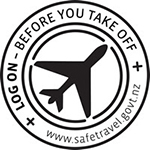
SafeTravel is the official source of travel advice for New Zealanders, with advisories for specific destinations. Checking SafeTravel helps you avoid travel blackspots.
On SafeTravel you can also register your details and travel plans. If a crisis occurs overseas, MFAT will contact New Zealanders who have enrolled to check on their safety and well-being.
We also recommend you take out travel insurance. If you can’t afford travel insurance, you can’t afford to travel.
While you are overseas, make sure you respect cultural norms and obey local laws.
SafeTravel (external link) is the Ministry of Foreign Affairs and Trade website designed for New Zealanders who are travelling or living overseas. You will find:
- traveller’s checklist to help you plan your journey
- news features
- travel advisories for specific destinations, with up-to-date information on security risks
- registration facility where you can log your travel plans in case you need to be contacted in an emergency
- when things go wrong - information that may assist you.
Being prepared in Korea
South Korea has a modern, well developed emergency response infrastructure and contingency plans in place for many emergency situations. In any emergency situation, New Zealanders should always monitor developments closely and follow instructions issued by local authorities. While the New Zealand Government will do what it can to assist New Zealanders in emergency situations, and the Embassy in Seoul prepares accordingly, New Zealanders living in and visiting South Korea must make their own preparations and decisions regarding their safety based on individual circumstances.
As we recommend for New Zealanders in all countries, it is important that you and accompanying family members are prepared for an emergency situation. Some of the measures you may wish to consider include:
- Prepare an emergency kit similar to what you would have at home in New Zealand, including cash, food, water, medicines, baby supplies, torches, radios, a backpack, etc.
- Keep your family in New Zealand regularly informed of your plans and well-being.
- Familiarise yourself with emergency procedures in your home and workplace, and nearby emergency shelters (eg see below).
- Check you have comprehensive travel and medical insurance.
- Replace your credit cards if they are about to expire and ensure you have enough credit available to pay for unexpected flights and emergency accommodation.
- Ensure your passports are up-to-date and have a minimum of six months validity left on them. See the Department of Internal Affairs website for information on applying for a replacement passport, www.passports.govt.nz (external link)
- If accompanying family members do not travel on a New Zealand passport ensure they have a valid visa for possible onward travel to New Zealand.
- If you have recently had a child overseas, apply for New Zealand citizenship and a passport for the child.
- Keep your essential documents in one secure place that is easily accessible to you at all times.
The Korean government National Emergency Management Agency (NEMA) website provides general advice in English and Korean on what to do in the event of an emergency in Korea. NEMA have also prepared a smart phone application (for both Android and Apple) that details nearest emergency shelters. You can find this in the Apple App Store (external link) (not available in the New Zealand App Store) and Android Play Store (external link) , or by searching for the application called “재난안전알리미”. After installing this app, you will see a section called “Shelters” that has English information on your nearest emergency shelter. The other parts of the app have information in Korean.
Travel advisory for Republic of Korea
- Korea (external link)
- Share on Facebook
- Share on Twitter
- Share on LinkedIn
We use cookies and other tracking technologies to improve your browsing experience on our website, to analyze our website traffic, and to understand where our visitors are coming from. You can find out more information on our Privacy Page .
- Work With Us
- Blogging Bootcamp

- Van Conversion Academy
- Campervan Shop
- Campervan Rentals
- Plan a Trip
- Itineraries
- Destinations
- Responsible Travel
- Family Travel
- Budget Travel
- Scuba Diving
- Travel Credit Cards
- Digital Nomad
- Teach English Abroad
- Blogging Resources
- Income Reports
- Travel Shop
- Meet Katie & Ben
- About Two Wandering Soles
- Personal Stuff
- Portfolio & Press
How to Plan the Perfect New Zealand Itinerary
Home » Blog » New Zealand » How to Plan the Perfect New Zealand Itinerary
With miles of jaw-dropping landscapes and experiences, it can be hard to decide how to plan for a trip to New Zealand. We’re walking you through how to put together the perfect New Zealand itinerary based on our travels.
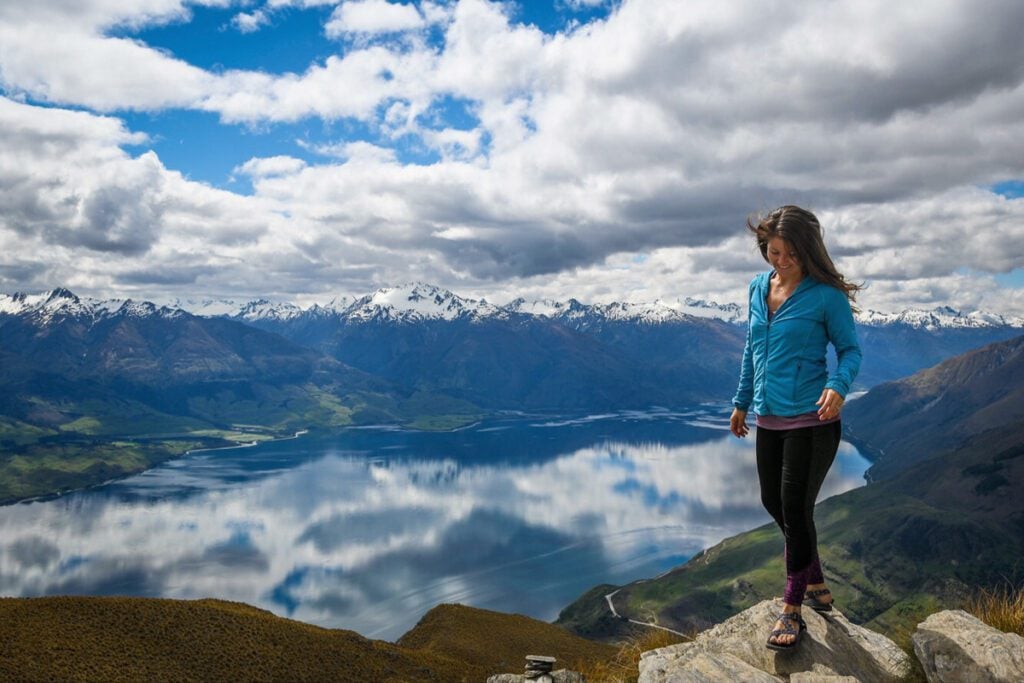
New Zealand is truly one of our favorite countries to explore. And if you know me, you know how hard it is for me to choose favorites.
The relatively small island nation is home to an astounding variety of scenery: lush forests, snow-capped mountains, volcanoes, ancient glaciers, stunning coastlines, rugged fjords, and rolling farmland.
There are tons of activities to get your adrenaline pumping in the “Adventure Capital of the World”. You can go caving, hiking, skydiving, skiing, climbing, bungee jumping, jet boating, swimming with dolphins, camping… just to name a few.
But there are also plenty of opportunities to slow down. On our trip, we soaked in hot springs, sipped wine, sampled the local cuisine , slept in mountain huts, and relaxed on the beach.
We spent 5 weeks traveling around New Zealand in a campervan, and we’ve been lucky enough to explore a lot of what this country has to offer!
In this article, we’ll walk you through exactly how to plan the perfect New Zealand itinerary, from how much time you’ll need to where to go and how to spend your days.
New Zealand itinerary contents
- Where to go
- Type of travel
- Where to start/end
- How many days
- Typical Budget
- Accommodation
- Perfect New Zealand itinerary
- Booking your trip
- Itinerary planning resources
Want to save time and energy on planning?
If you want to save yourself the hours of research and planning, we’ve got you covered with our ultimate done-for-you New Zealand Itinerary . This itinerary includes a lot of what you’ll find in this article, plus so much more!
We took our 5-week travels and condensed it down to 30 days (because so many people wanted a 1-month route) that hits the top destinations on both the North and South Islands in one epic road trip.
We’ll send you our complete 1 month itinerary, filled with tips and advice. Just click below to get your 30-day New Zealand road trip itinerary today!

Where to go on your New Zealand itinerary
From the vibrant cities and geothermal wonders of the North Island to the wild fjords and towering mountains of the South Island, below is a list of places to consider visiting on your New Zealand itinerary. We’ve included the country’s main highlights as well as some underrated gems not to be missed.
(Are you skipping the North Island all together? Jump down to the South Island .)
North Island
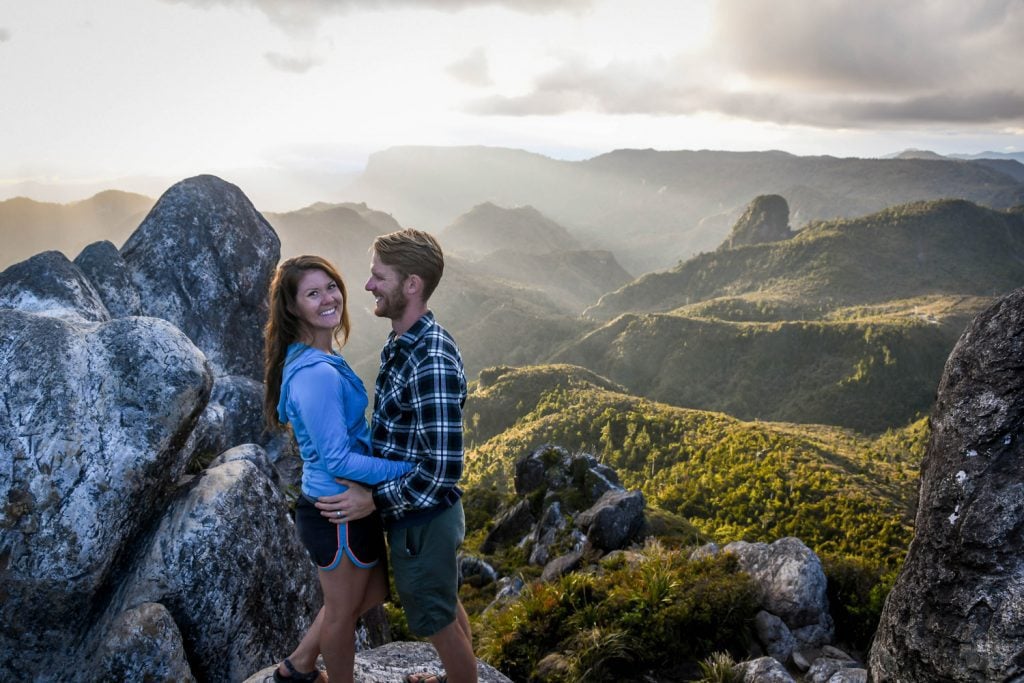
With thermal hot springs, white sand beaches and enough volcanoes to make your head spin, New Zealand’s North Island is not to be overlooked. Though it is often outshined by its more mountainous neighbor to the south, we found the North Island to be quite enjoyable.
If you’re looking for a shortcut, we created a perfect New Zealand North Island itinerary that brings you to all the major highlights, as well as hidden gems off the typical tourist path.
We’re even sharing where to stay and what to eat in the North Island, so you have all the information you need right at your fingertips!
Below we’ve listed all of the top places to consider visiting on the North Island of New Zealand.
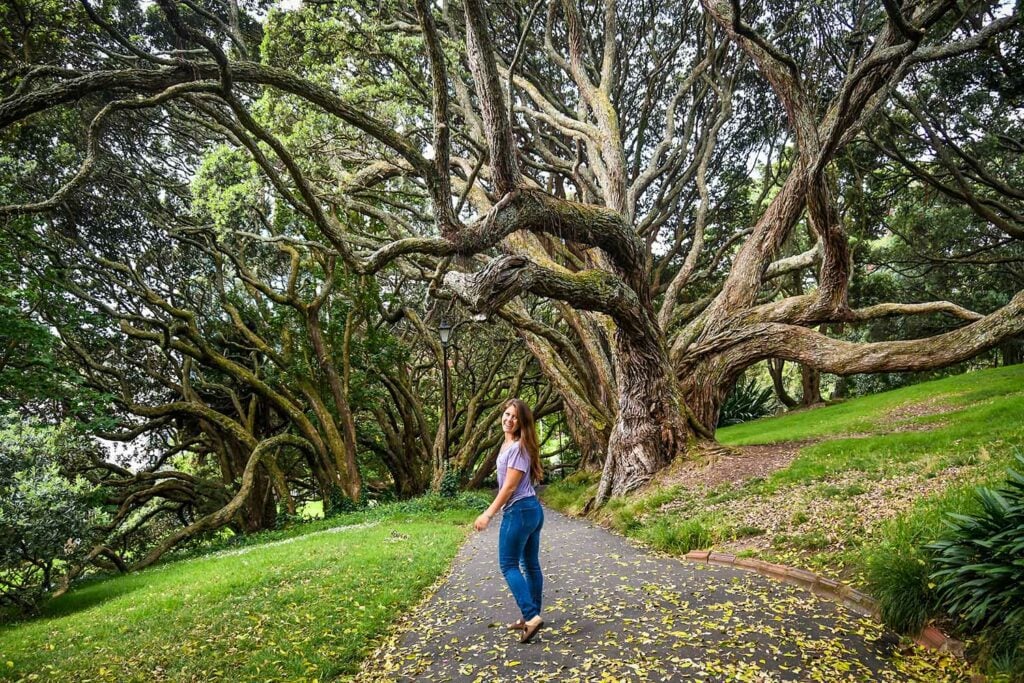
Due to its large international airport, Auckland is the entry point for most visitors to New Zealand. It’s also the country’s largest city, with more than a third of the national population residing here.
This “City of Sails” is a dynamic, multicultural metropolis with a buzzing waterfront, lots of green space, and a diverse dining scene. In addition to all the fun things to do in Auckland , it also makes a great base for some of the North Island’s best day trips.
Waiheke Island
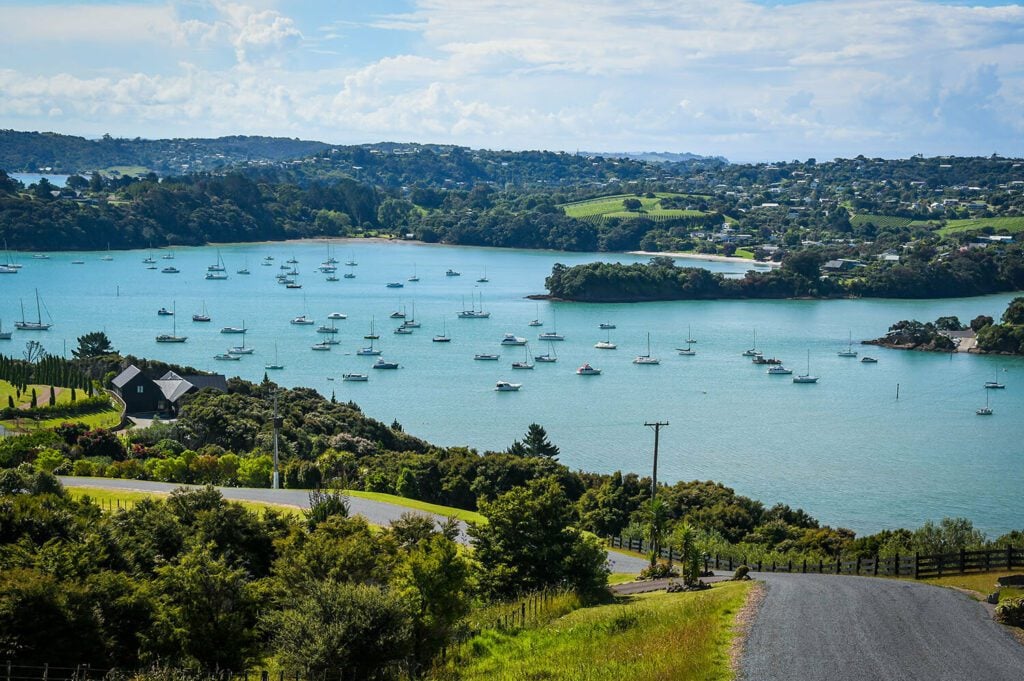
Just a short ferry ride from Auckland, Waiheke Island is a captivating gem known for its world-class wines, which visitors can sip while taking in the picturesque vineyards and olive groves that dot the landscape.
Nature lovers can explore pristine beaches, lush forests, and rugged coastal cliffs , while cultural connoisseurs browse art galleries, boutique shops, and fine dining establishments.
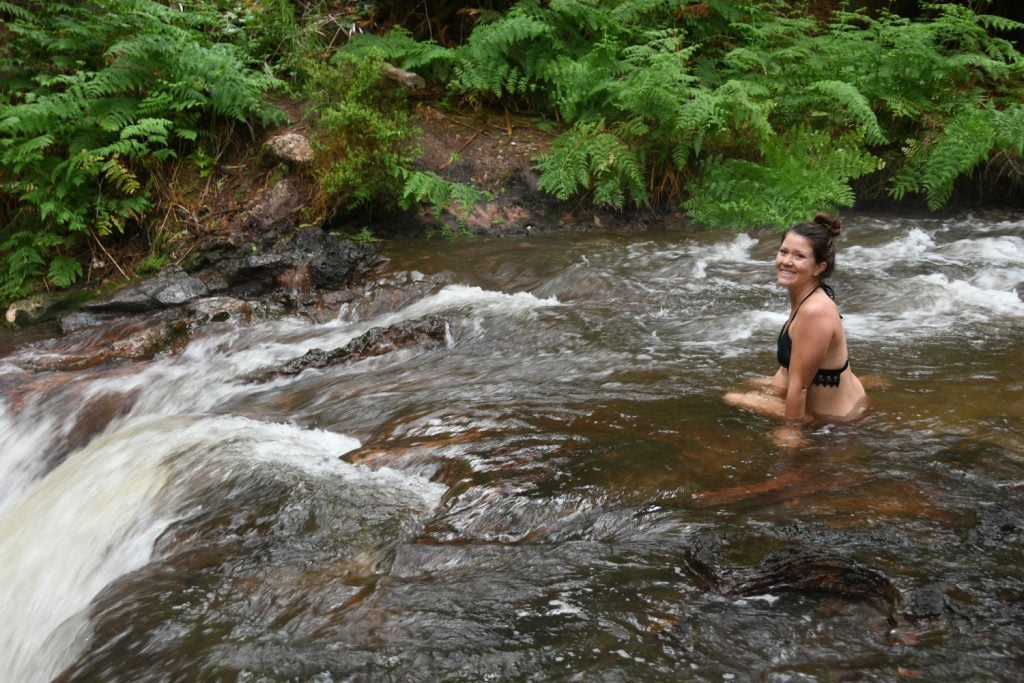
This geothermal wonderland of Rotorua boasts bubbling mud pools, steaming geysers, and colorful mineral-rich hot springs alongside lush forests and serene lakes. It is also home to the Whakarewarewa Living Maori Village and offers cultural experiences, including traditional Maori performances and cuisine.
Coromandel Peninsula
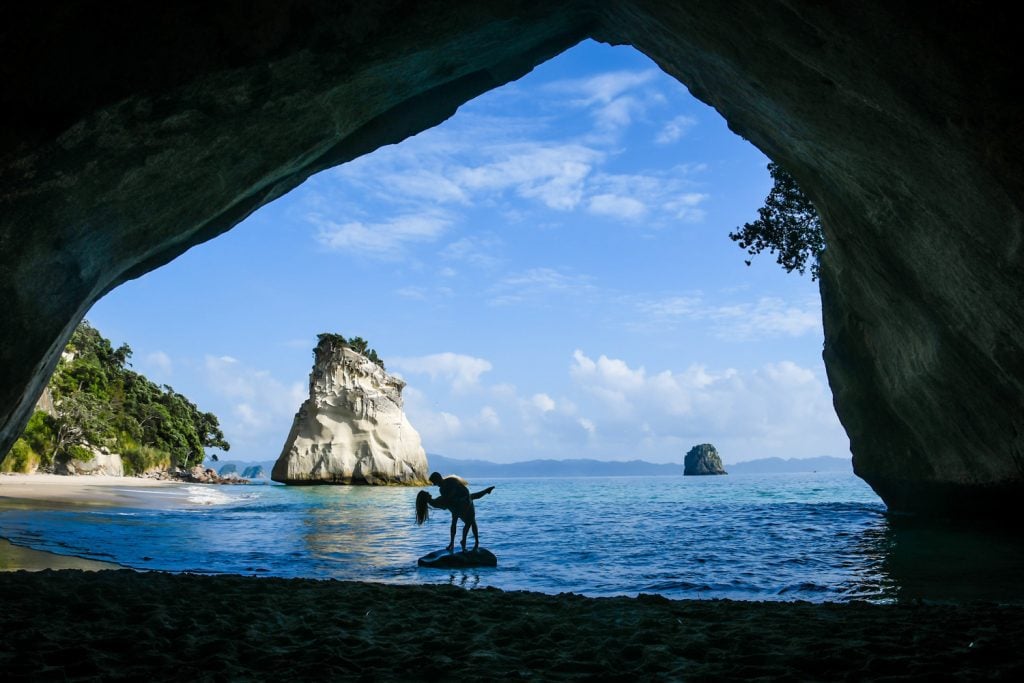
A coastal region with a laid-back vibe , the Coromandel Peninsula is home to some seriously bucket list-worthy experiences. Trek or kayak to the marine reserve at Cathedral Cove, dig your own personal hot tub at Hot Water Beach, or kick back in the charming seaside towns of Whitianga and Coromandel Town.
Mount Maunganui
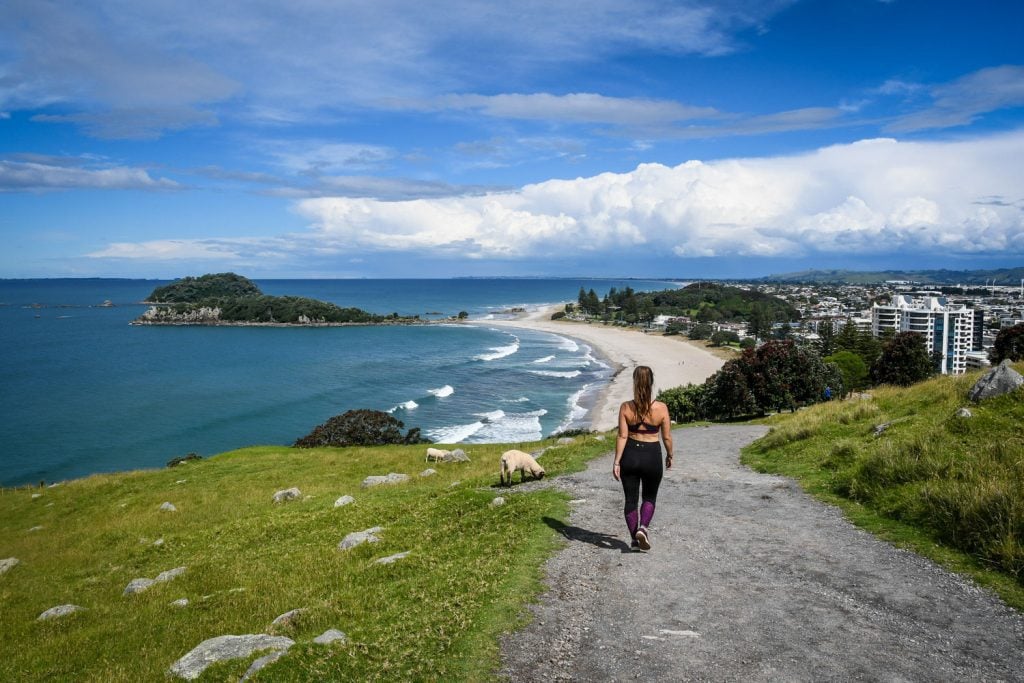
Located in New Zealand’s Bay of Plenty, Mount Maunganui is a dreamy destination for hikers, surfers, and beach bums alike. Summit the iconic Mauao, an extinct volcanic cone , for panoramic views of the surrounding land and seascapes.
Bay of Islands
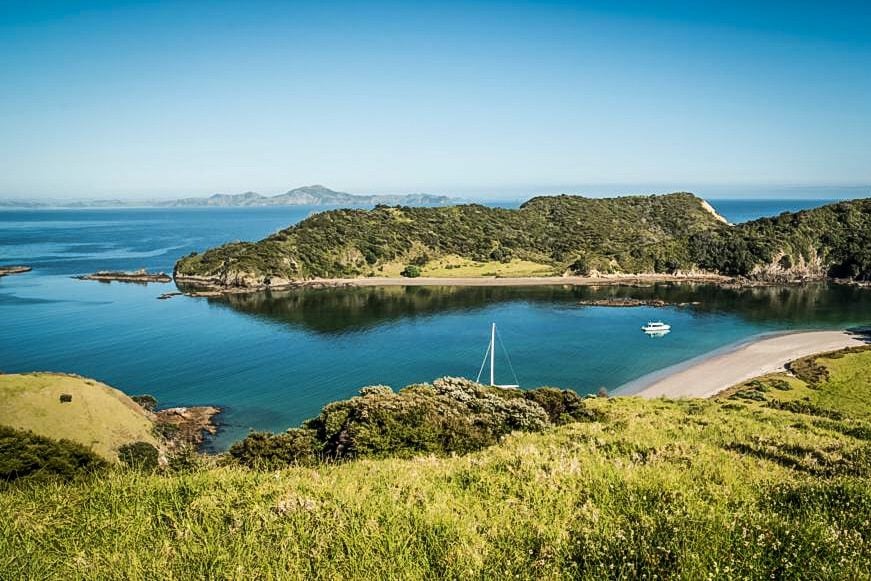
The 144 islands that make up this subtropical region are full of cute seaside towns and marine wildlife . The Bay of Islands is also historically significant, as this is where the Treaty of Waitangi (New Zealand’s founding document) was signed in 1840.
Cape Reinga
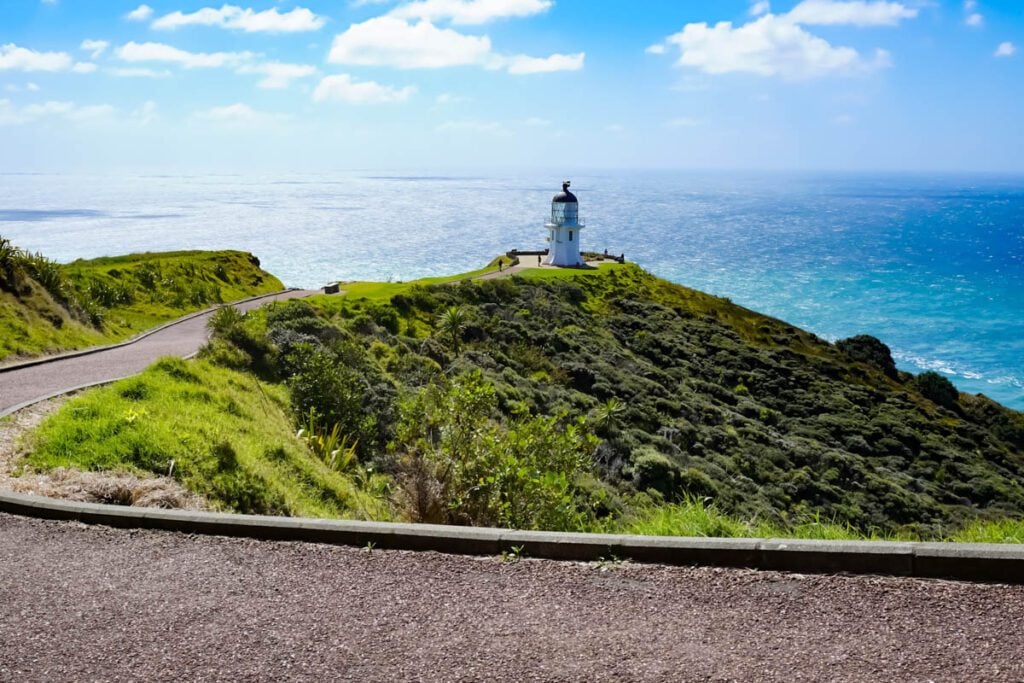
The Tasman Sea meets the Pacific Ocean at the northern tip of the North Island. The mesmerizing collision of currents makes it easy to see why Cape Reinga is a site of deep spiritual significance in the Maori tradition.
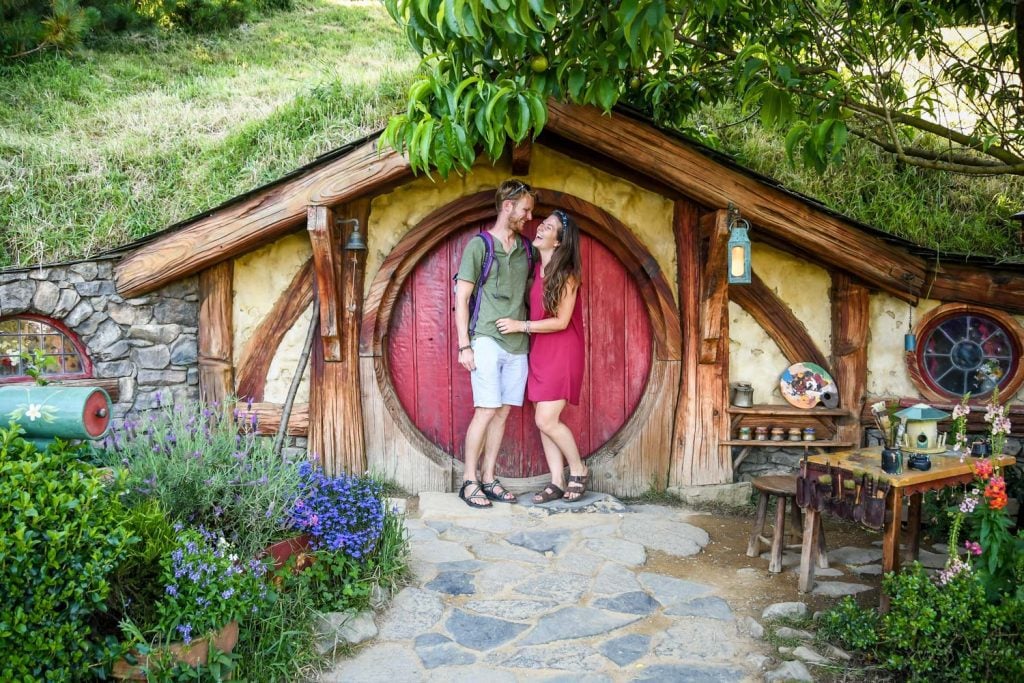
If you haven’t heard of Hobbiton, you may be living under a rock (or a hill!)… The Lord of the Rings film set is one of New Zealand’s most popular tourist attractions, complete with life-sized hobbit holes , magical gardens, and the iconic Green Dragon Inn.
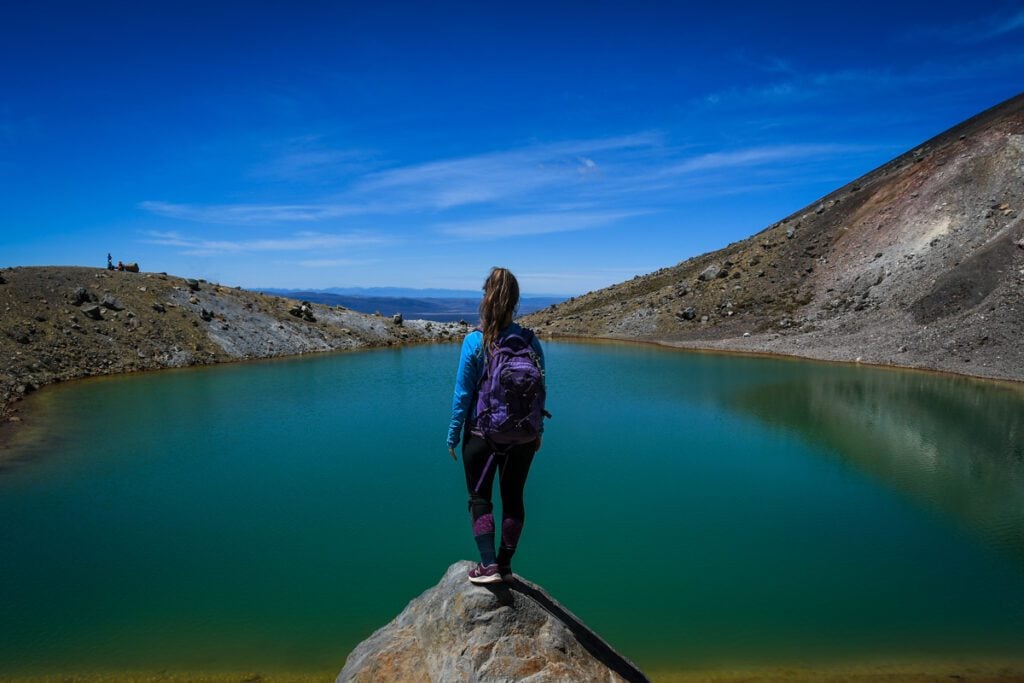
Nestled in the heart of the North Island’s volcanic plateau, the deep blue waters of New Zealand’s largest lake provide a scenic backdrop for swimming and boating. On the north shore of the lake, the town of Taupo serves as a gateway for Tongariro National Park, home to New Zealand’s best day hike .
Hawke’s Bay
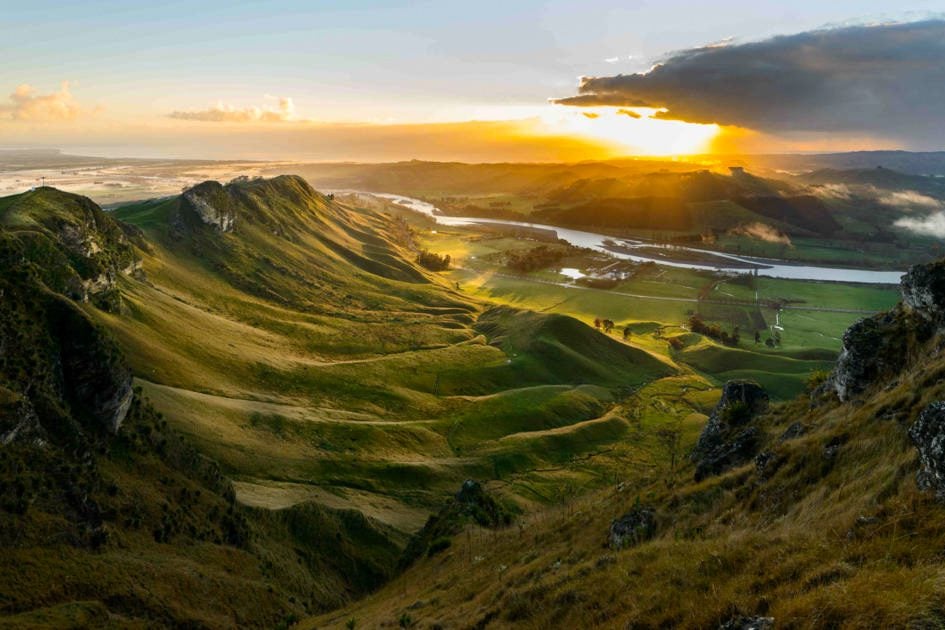
Hugging the North Island’s east coast, the region of Hawke’s Bay is known as “New Zealand’s Food and Wine Country” for good reason. With 200+ vineyards and 70+ wineries, Hawke’s Bay is one of the Great Wine Capitals of the World.
Not a fan of vino? You won’t be left wanting for other choices – craft beer, distilleries, fresh juices, cafes, and some of the country’s best restaurants – you’ll find it all in Hawke’s Bay.
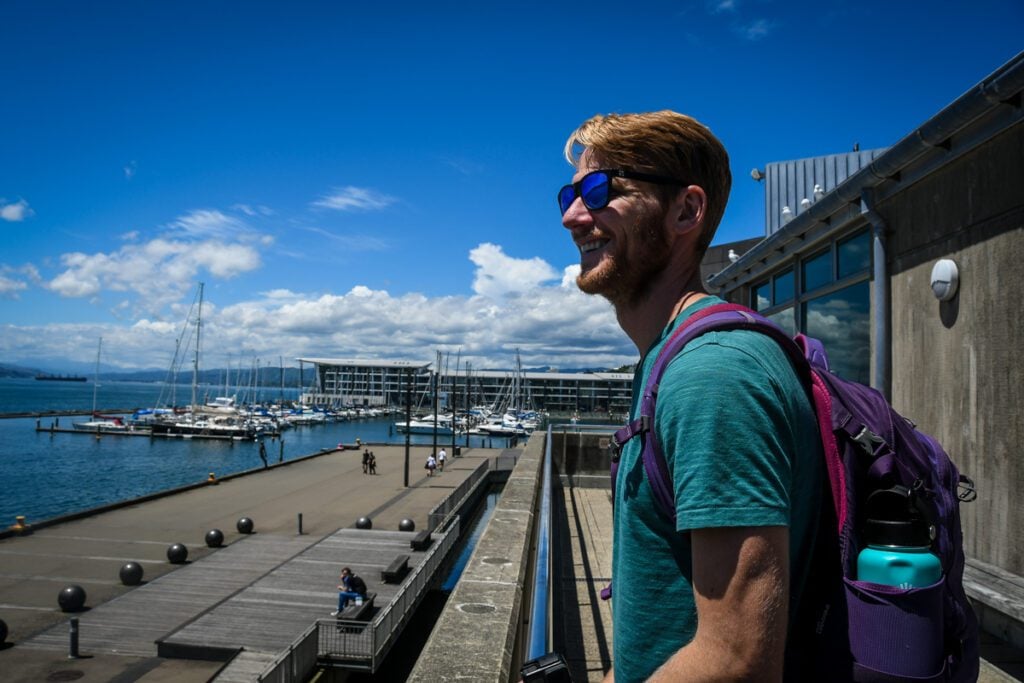
New Zealand’s capital is a compact but thriving harbor city at the southern tip of the North Island. Caffeine fiends (like us!) will enjoy the city’s famous coffee culture , while foodies (also us!) can indulge in an eclectic dining scene .
There are plenty of opportunities for cultural immersion in the urban hub with museums, galleries, theaters, and live music venues, as well as chances to explore the city’s natural surroundings.
Read more in our Wellington Travel Guide .
South Island
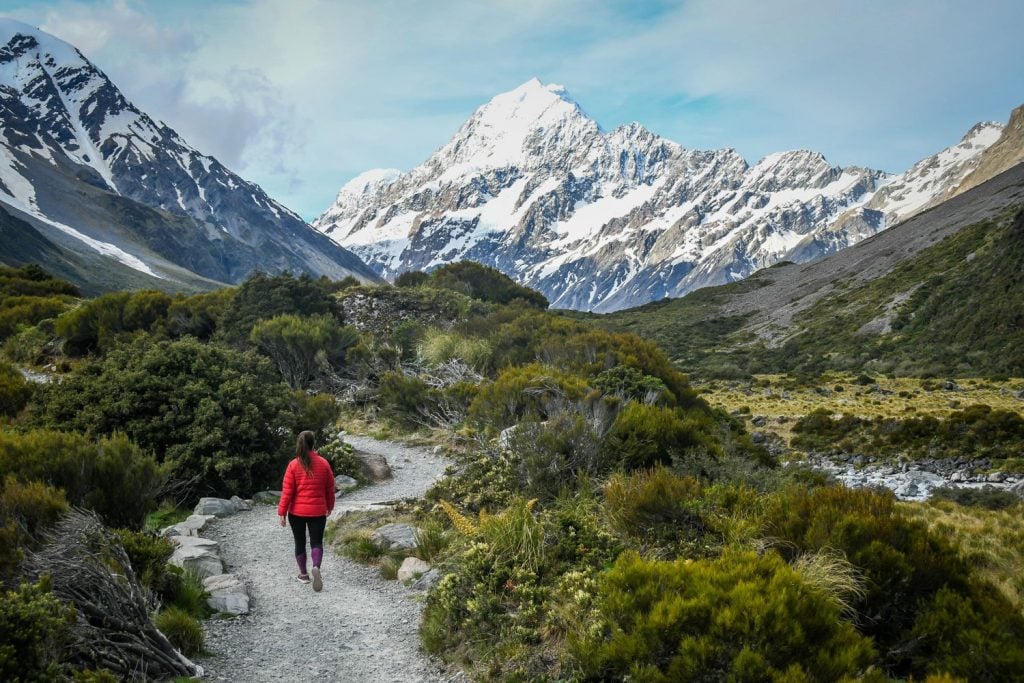
With picturesque fjords, snow-capped mountains, temperate rainforests, and black sand beaches, New Zealand’s South Island is a nature-lover’s paradise.
We’ve created an action-packed 2-week South Island New Zealand itinerary that hits the major highlights and gets off the beaten path.
We even included tips for altering it to fit a shorter trip, and recommendations for what to see if you have more than two weeks to explore!
Below are some of the places we’d recommend including in your travels on New Zealand’s South Island.
Christchurch
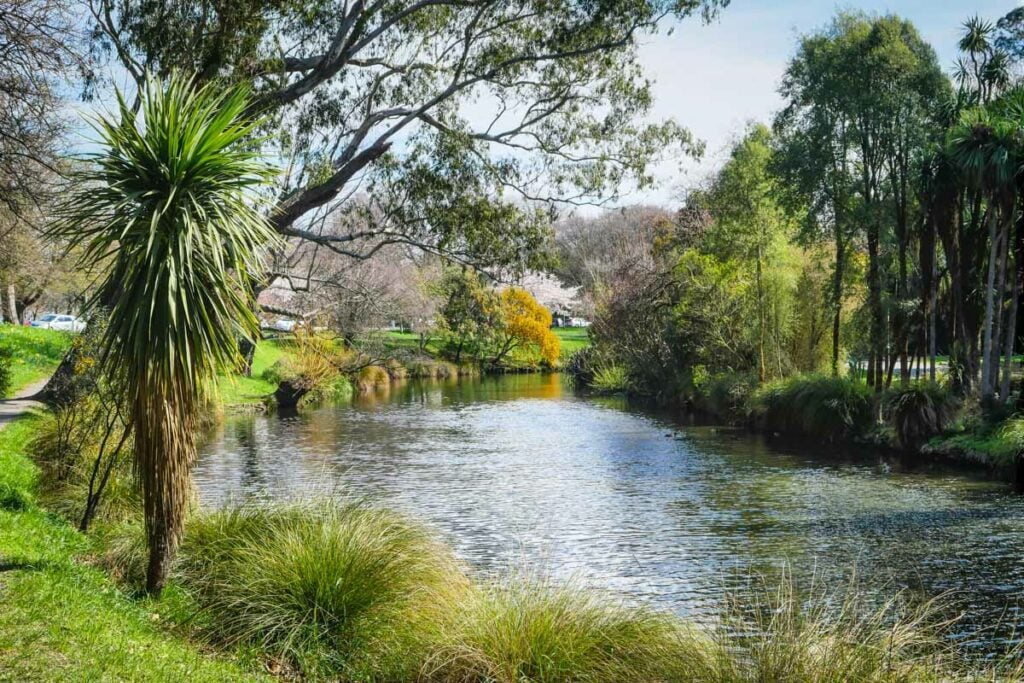
Known as the “Garden City” for its parks, green spaces, and famous Botanic Gardens , Christchurch is a lively city with a buzzy vibe.
Rebuilding efforts following the devastating earthquakes of 2010 and 2011 focused heavily on environmental initiatives and Christchurch has since become a shining example of innovative urban planning and sustainability .
Lake Tekapo
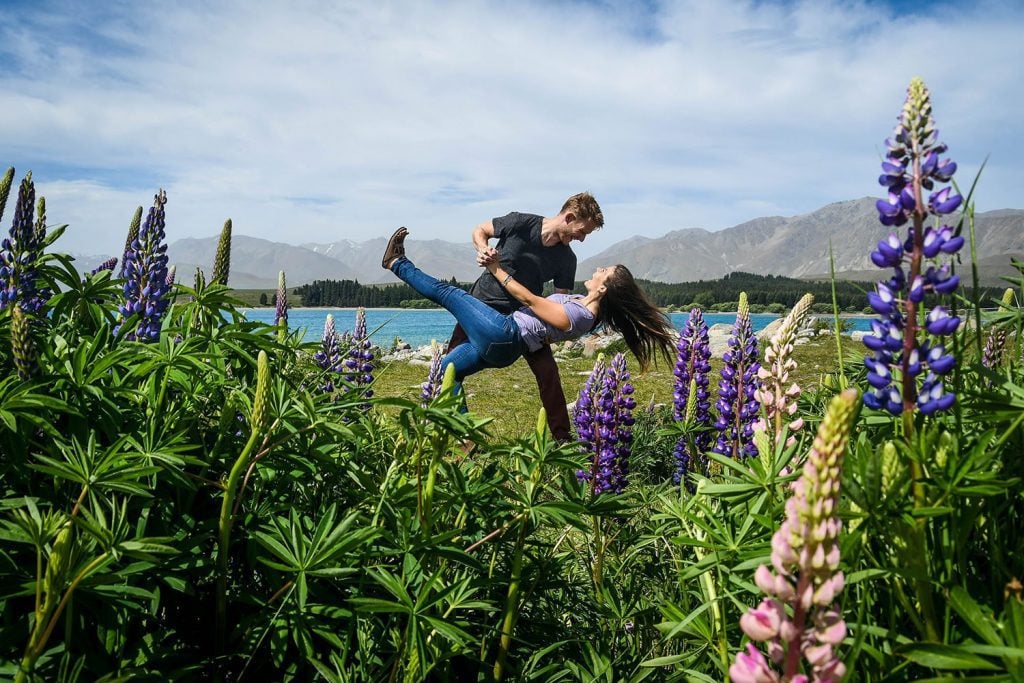
Situated in a UNESCO Dark Sky Reserve and surrounded by the rugged Southern Alps, Lake Tekapo offers a tranquil escape on the South Island. With turquoise glacial waters by day and dazzling star-filled skies by night, the scenery at Lake Tekapo is nothing short of breathtaking.
Lake Pukaki
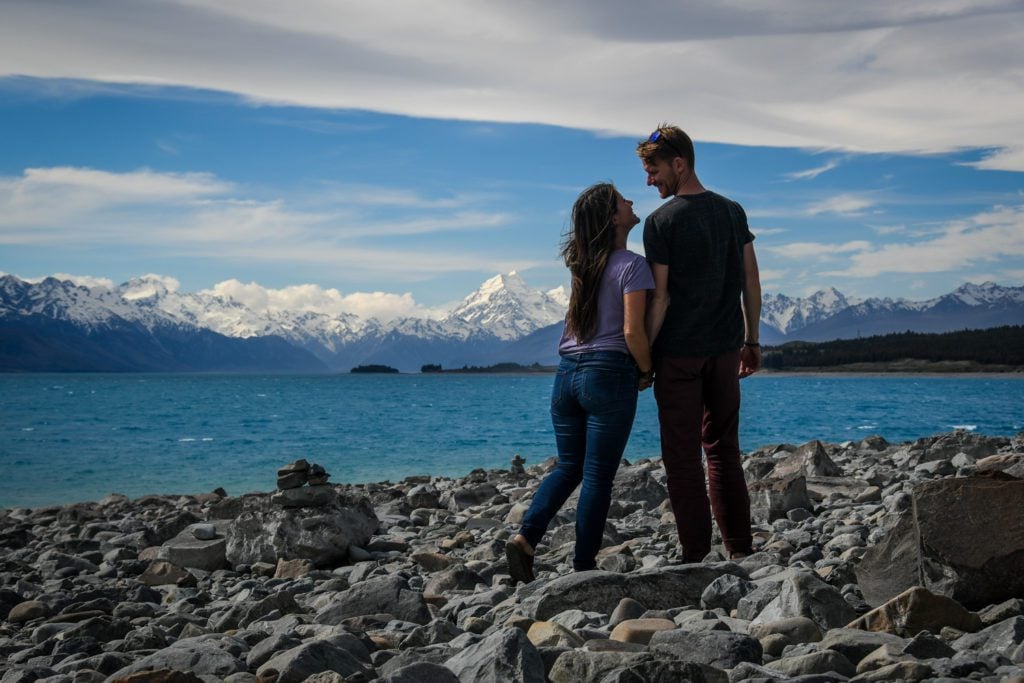
Another stunning alpine lake, the vivid turquoise color of Lake Pukaki is caused by “rock flour” suspended in the meltwater from the Tasman and Hooker glaciers. Its postcard-worthy surroundings and proximity to Aoraki Mount Cook National Park make Lake Pukaki a must-visit destination for nature lovers and outdoor enthusiasts.
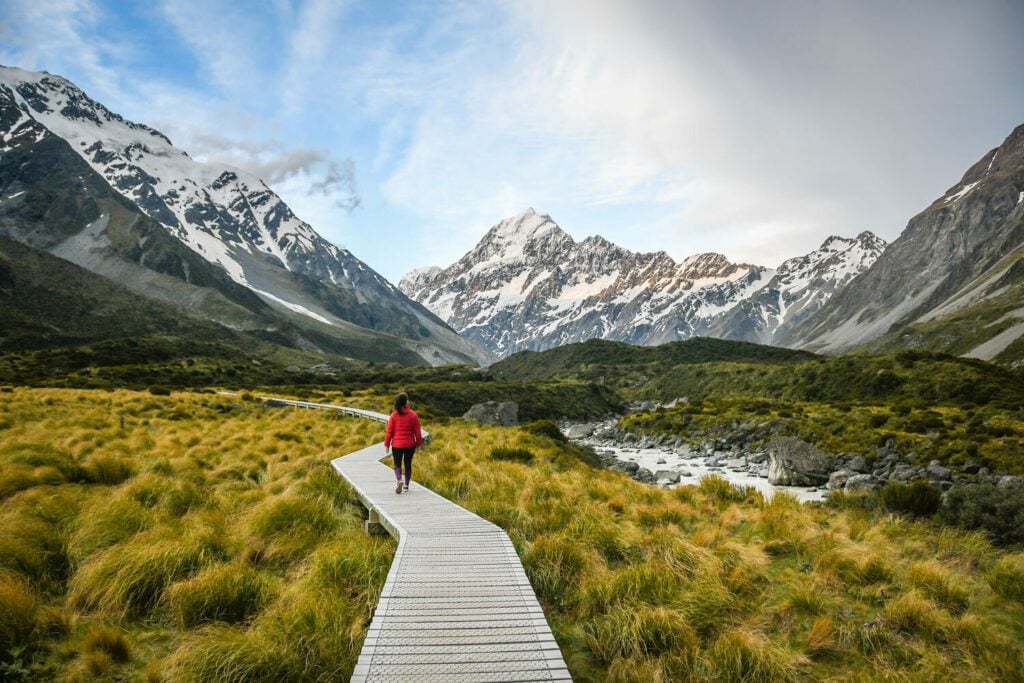
At 3,724 meters (12,218 feet), Mount Cook is New Zealand’s highest peak and the crown jewel of Aoraki Mount Cook National Park. It’s a haven for hiking and mountaineering; in fact, the majestic peak famously aided Sir Edmund Hillary in preparing to summit Everest. But don’t worry, you don’t have to be a legendary mountain climber (or even a hiker) to enjoy the park’s breathtaking glacial vistas and alpine scenery.

Not only is Queenstown credited as the birthplace of bungee jumping , it also offers a plethora of other heart-pumping activities, earning itself a reputation as the “Adventure Capital of the World”. Not an adrenaline junkie? No problem! From cultural activities to culinary adventures, there are plenty of things to do in Queenstown for all ages and interests.
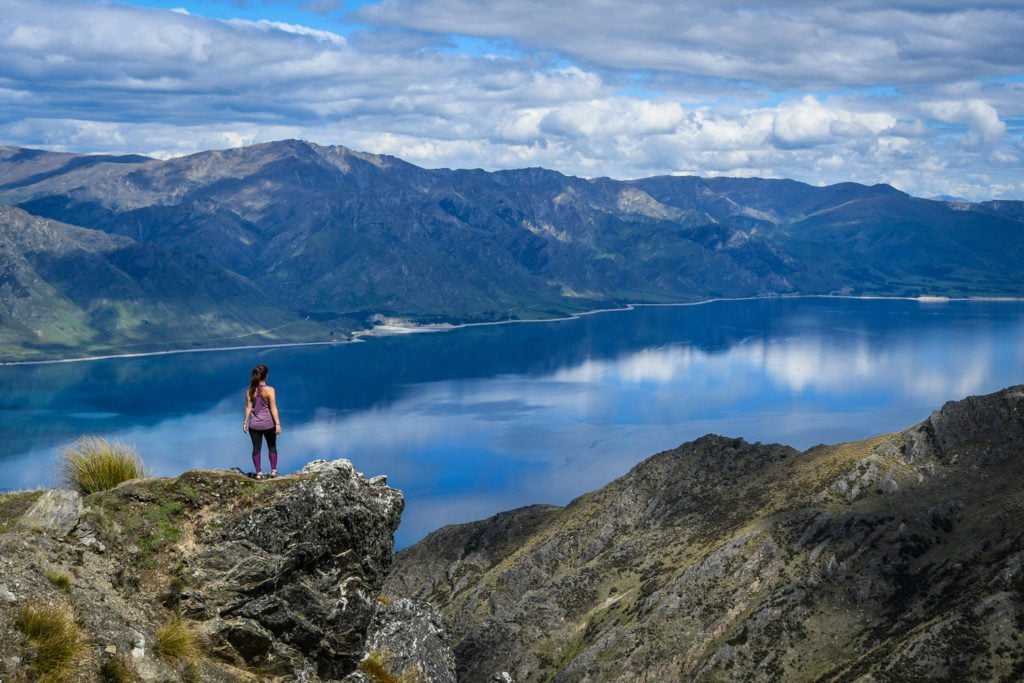
Nestled on the shore of its namesake lake, Wanaka is a charming resort town with a proud craft beer culture. In the evenings, you can find outdoor enthusiasts enjoying a pint in one of the local breweries after a day of hiking, mountain biking, skiing (winter), or water sports (summer).
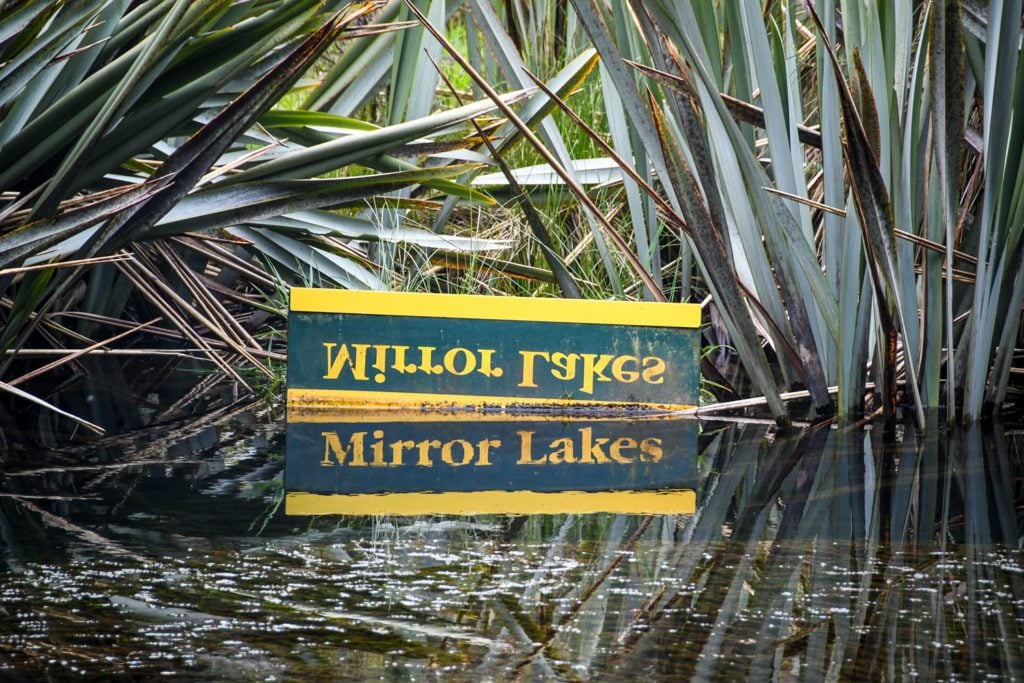
This idyllic lakeside town is the perfect base for exploring some of New Zealand’s most iconic natural attractions, such as Fiordland National Park, Milford Sound, and 3 of the country’s 10 Great Walks. Meanwhile, Te Anau itself offers both relaxing and adventurous activities, including l ake cruises, glowworm caves, and a bird sanctuary .
Milford Sound & Fiordland National Park
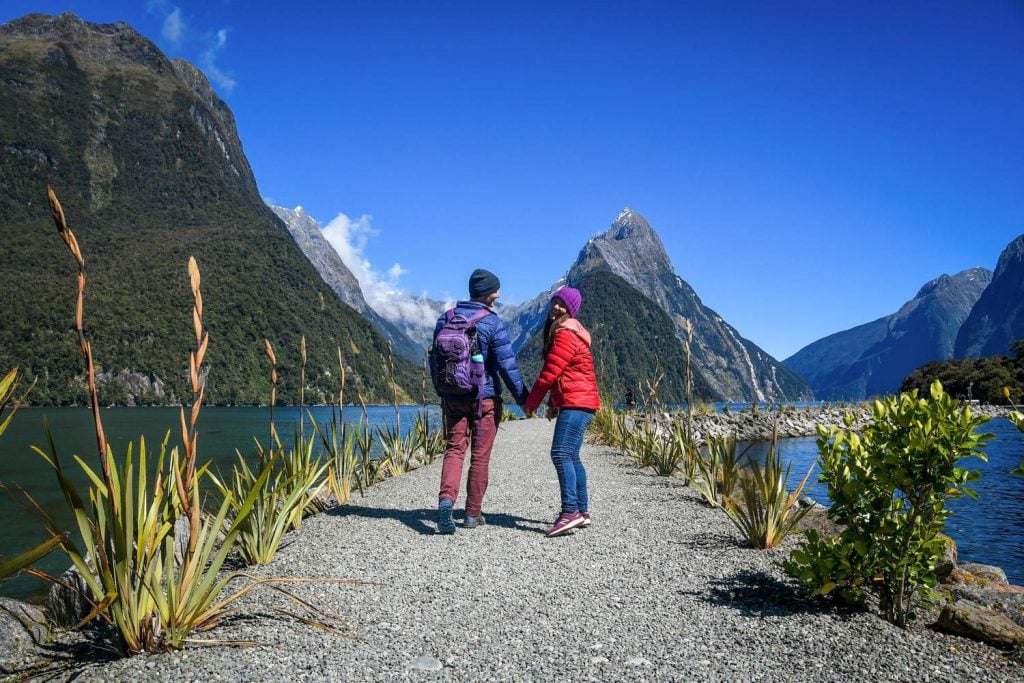
Fiordland National Park is a UNESCO World Heritage Area known for its untamed wilderness and biodiversity , and Milford Sound is the star of the show. With towering cliffs, cascading waterfalls, and verdant rainforests, Milford Sound is one of the most breathtaking natural attractions in the world.
Read more in our Milford Sound series:
- Milford Sound Cruise Guide
- Milford Sound Travel Guide
- Queenstown to Milford Sound Road Trip Guide
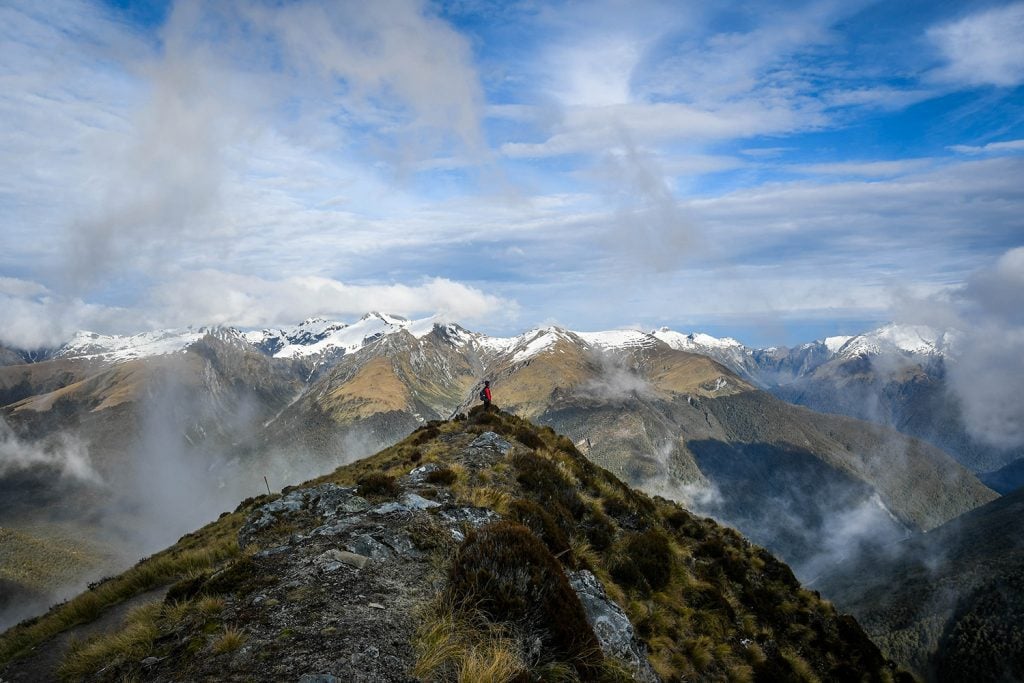
First thing’s first: “West Coast New Zealand” is a specific region, stretching from Haast to Kahurangi National Park on the South Island’s – well – west coast.
Okay, now that that’s cleared up…
The West Coast was one of our favorite regions in the country, a wild and untamed wilderness ranging from glaciers and snow-capped alps in the south to palm trees and white sand beaches in the north.
Read more in our West Coast Travel Guide .
Lake Rotoroa
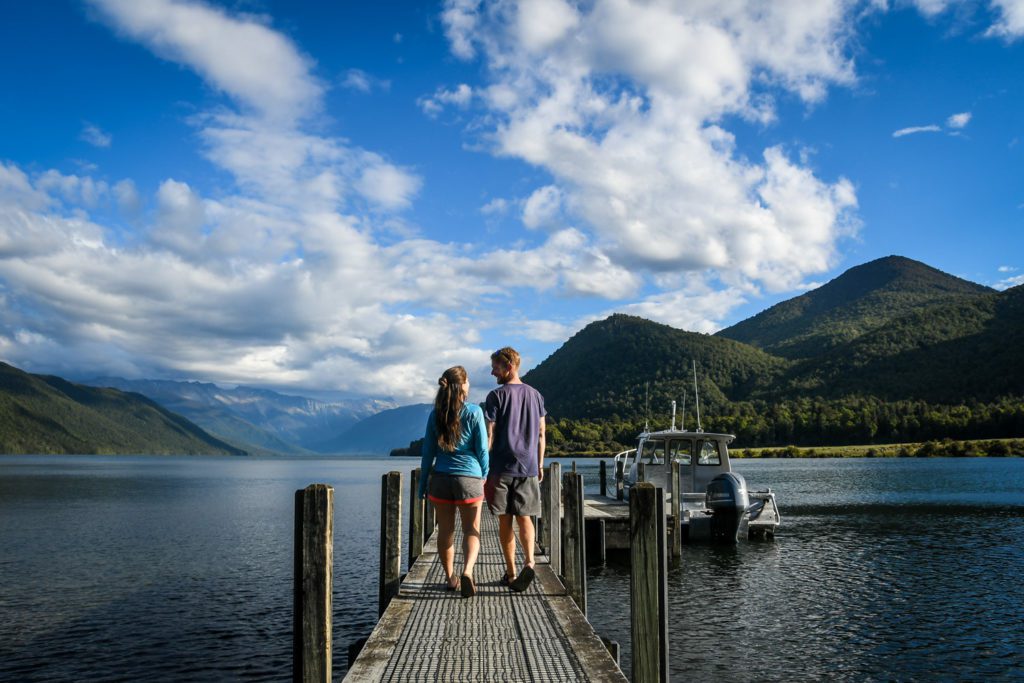
Enveloped by soaring mountain peaks and thick beech forests , Lake Rotoroa offers a remote escape 40 minutes from the nearest village of St. Arnaud. The surrounding Nelson Lakes National Park is threaded with trails ranging from leisurely walks to strenuous hikes. Bring your binoculars for birdwatching!
Abel Tasman
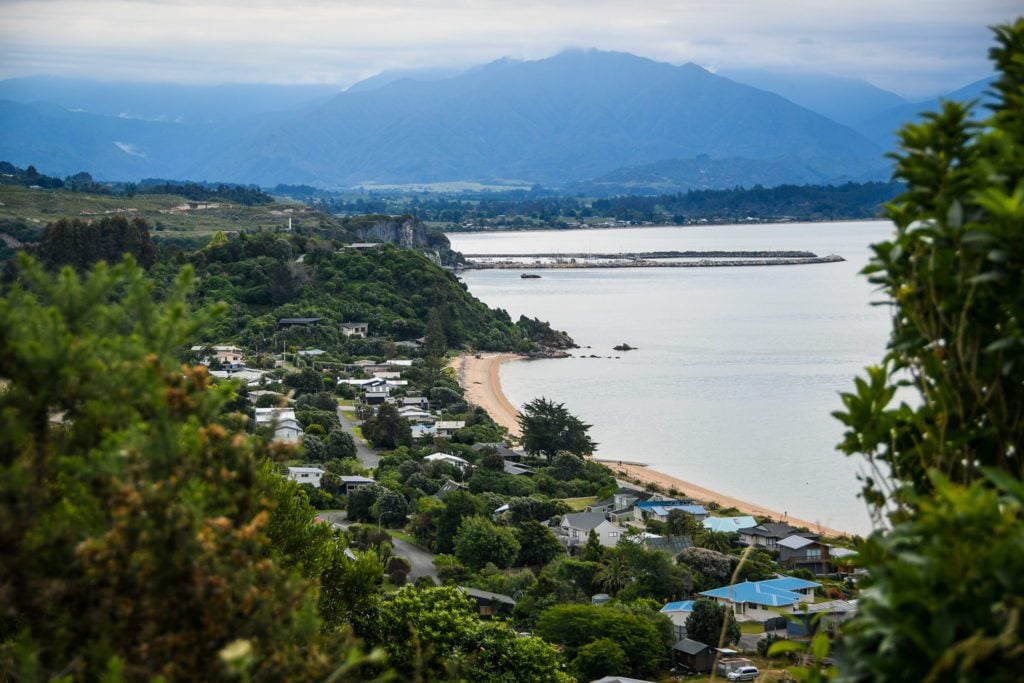
New Zealand’s smallest national park packs a big punch with golden sandy beaches, clear turquoise waters, and lush native forests. This coastal paradise holds secluded coves and hiking trails that are perfect for kayaking and spotting wildlife, such as dolphins and fur seals .
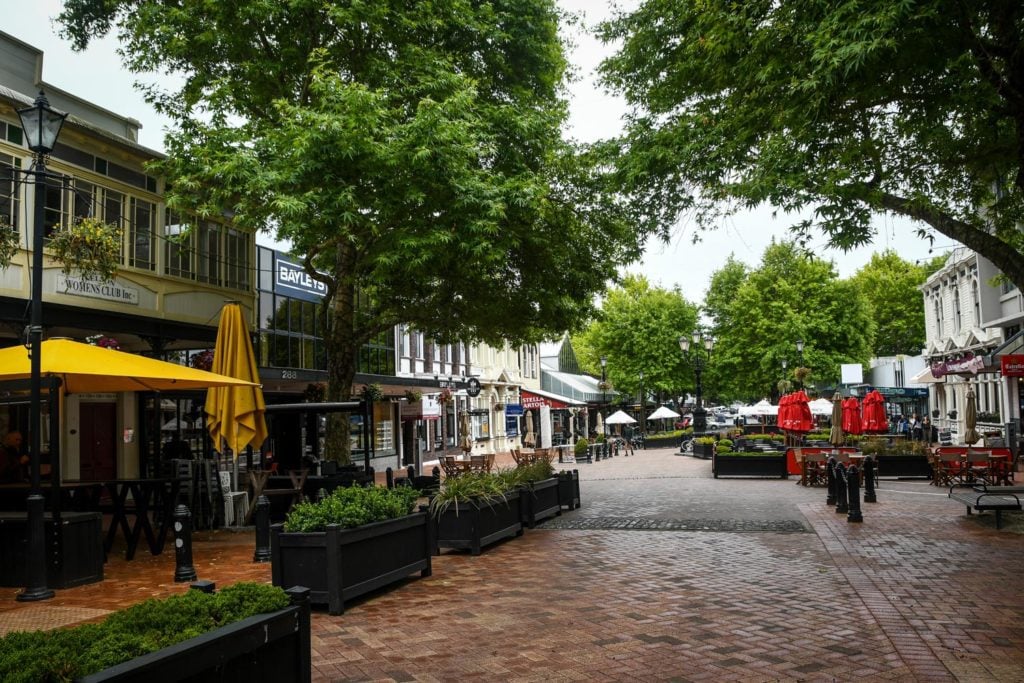
Situated on the shores of the South Island’s Tasman Bay, New Zealand’s sunniest city is a hub for artists and craftspeople of traditional, Maori, and contemporary persuasion. Visit the weekend markets for a chance to taste artisanal products and find a handcrafted souvenir to take home.
Marlborough
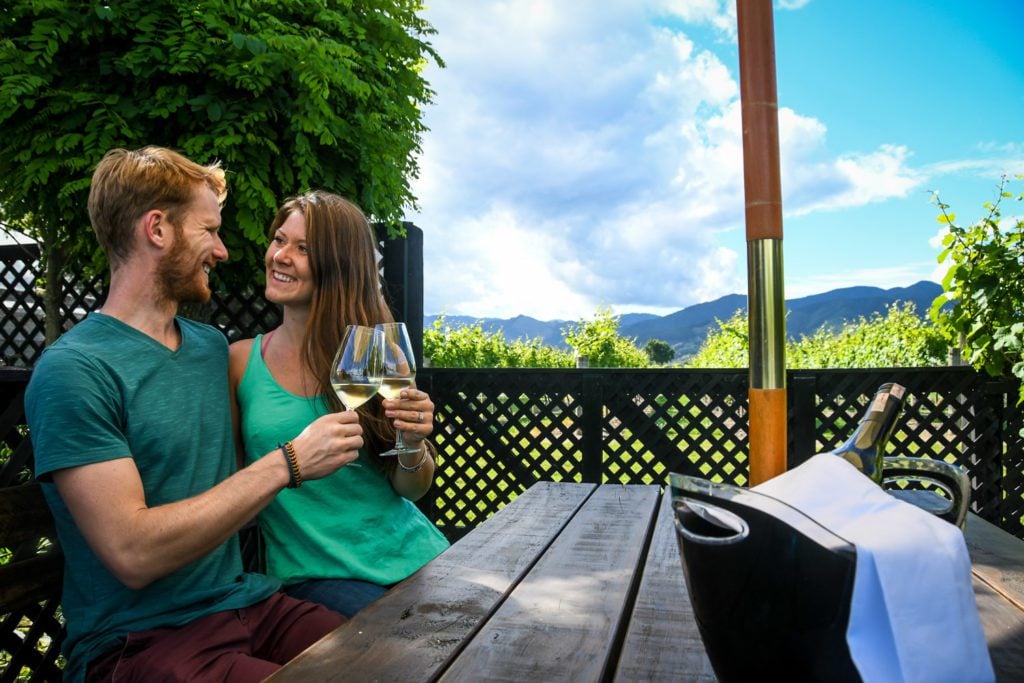
As New Zealand’s largest wine region, Marlborough is best known for its Sauvignon Blanc and fresh seafood (a match made in heaven!), as well as its diverse and stunning scenery. Rolling vineyards give way to the Marlborough Sounds, an intricate network of sheltered waterways and island sanctuaries that are home to dolphins, whales, seals, and the iconic kiwi bird.
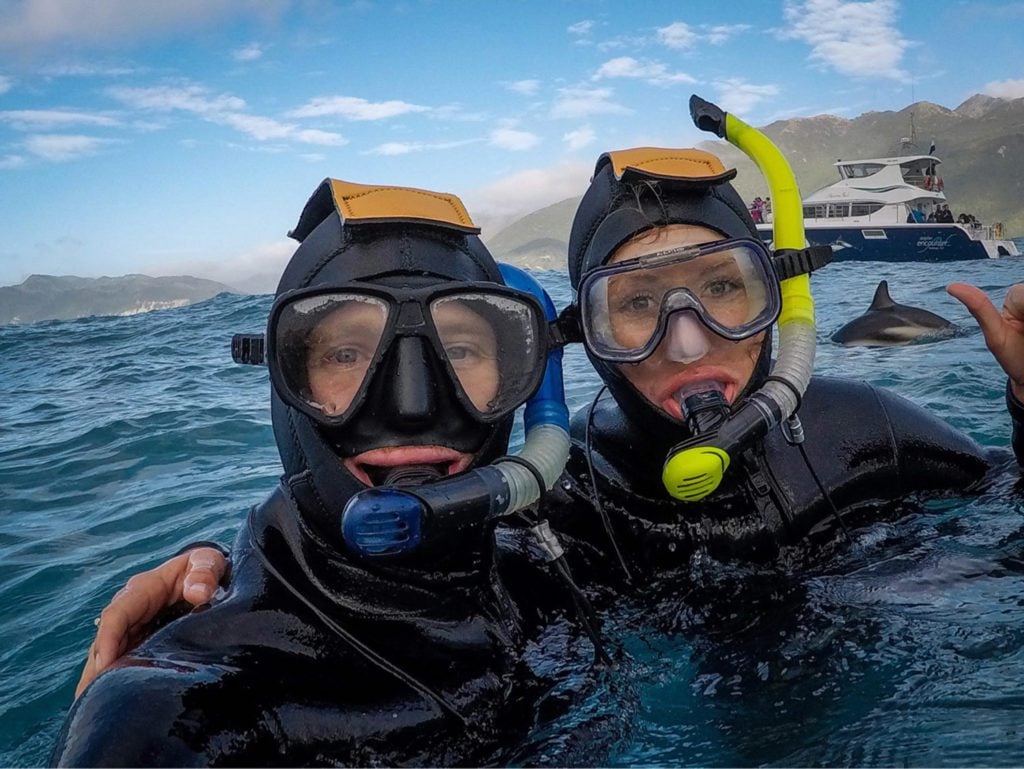
The coastal town of Kaikoura is renowned as one of the best places in the world for marine wildlife encounters, including whale watching and swimming with dolphins (ethically!). The abundant marine life coupled with its striking position between the dramatic Kaikoura Ranges and the Pacific Ocean make this a truly one-of-a-kind destination.
Dunedin and Otago Peninsula
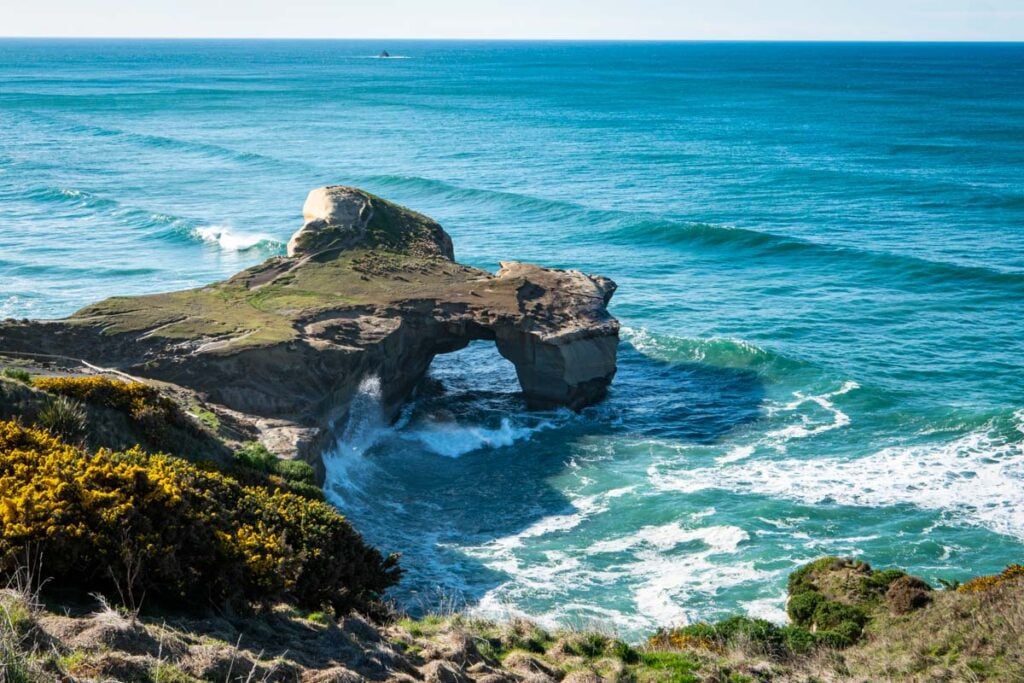
Dunedin rests at the head of a sheltered harbor, cradled by the Otago Peninsula on the South Island’s eastern shore. The city is steeped in Scottish heritage and historic architecture, including New Zealand’s only castle.
On the Otago Peninsula, scenic drives and hikes offer opportunities to view penguins, seals, sea lions, and albatross in their natural habitats.
Stewart Island
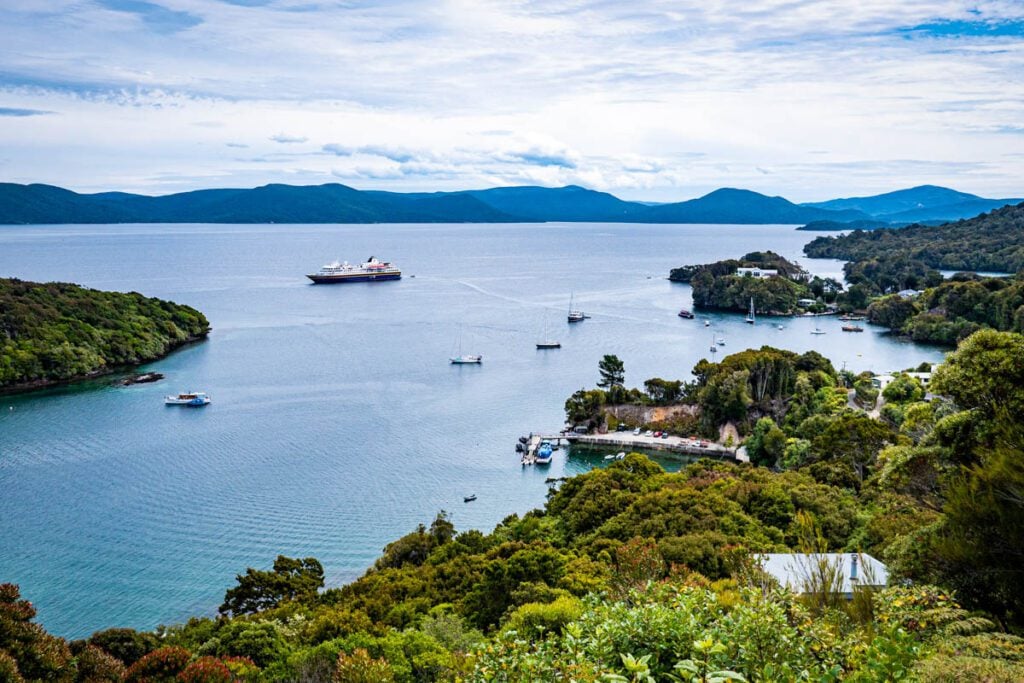
Located 30 kilometers south of New Zealand’s South Island, Stewart Island is a perfect place to get away from civilization. This remote island is known for excellent bird spotting, hiking, stargazing , and the peace that comes with being on an island with just 400 permanent residents.
Great Barrier Island
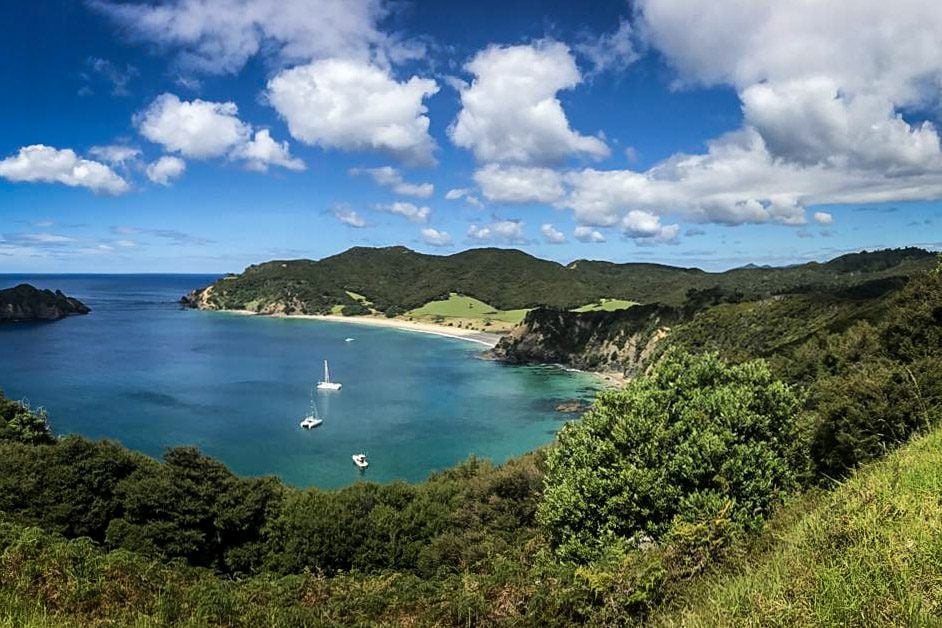
For picture-perfect beaches, untouched forests, and secluded bays, Great Barrier Island is a place to get away from it all. This tropical-feeling island is completely off-grid and has a population of 1,000 people. Getting here requires a 4.5-hour ferry ride from Auckland or a 30-minute flight.
When to go to New Zealand
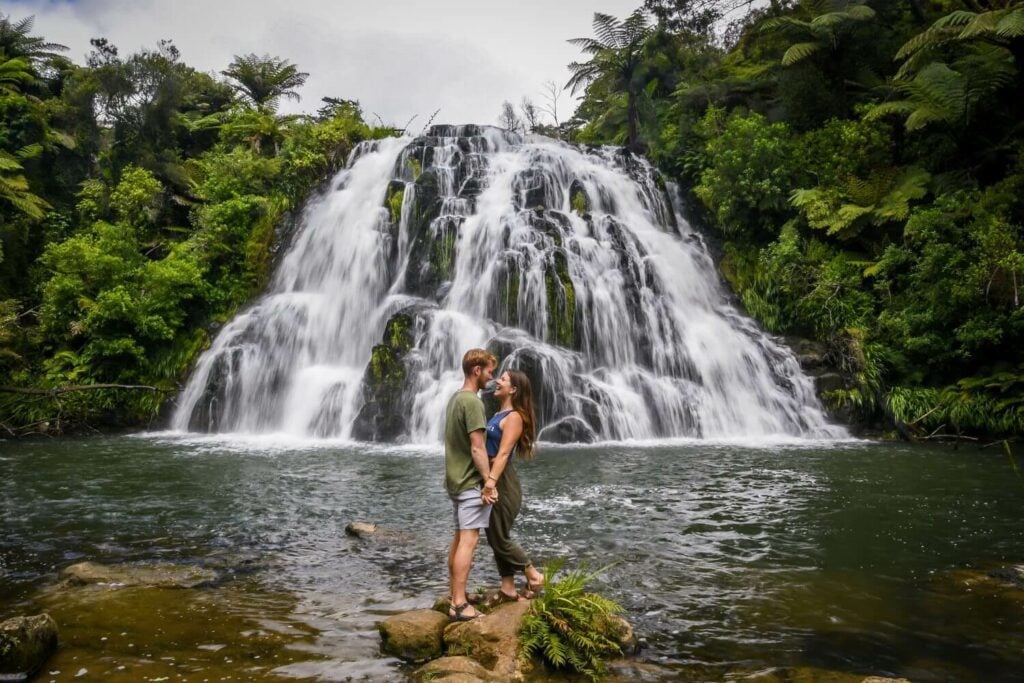
Spring (December – February) in New Zealand means temperatures are warming up and the days are getting longer. This is also lupin season, which is a big draw for photographers.
Summer (January – March) brings long and sunny days with warmer temperatures — great for hiking and long days at the beach.
Fall (March – May) is a great time to avoid high season crowds (and prices!) while still having enough daylight and comfortable temps to enjoy an array of outdoor activities.
Winter (June – August) in New Zealand is great for winter sports like skiing and snowboarding. Or if you are on a tight budget, this season brings the most discounted rates and the fewest crowds of the year.
Our personal pick would be to plan your New Zealand itinerary during the shoulder season between spring and summer (November/December).
For an in-depth guide on the regional seasons, weather patterns, and other factors, check out our complete guide to the best time to visit New Zealand .
Car vs. Campervan: How to get around on your New Zealand itinerary
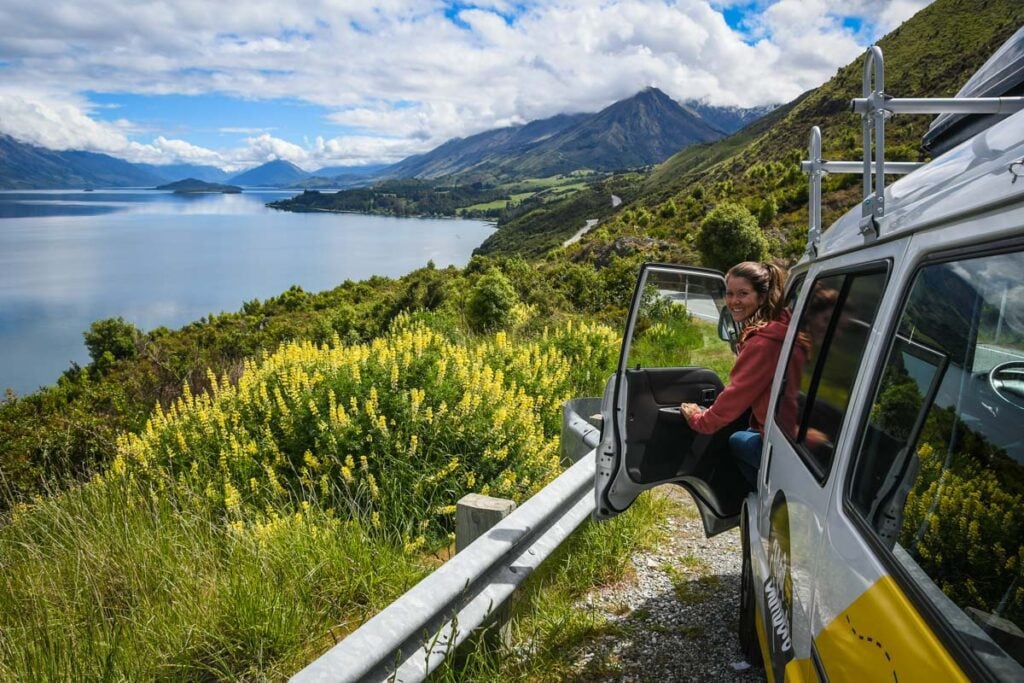
Though public transportation in New Zealand is pretty good, having your own set of wheels is hands-down the best way to explore the country for a few reasons:
- You can see hidden gems and get off the beaten path.
- You’ll be able to travel on your own schedule, and getting from point A to point B is faster.
- Driving in New Zealand is easy and parking is plentiful.
Now that we’ve established you’re renting a vehicle, you might be wondering, car or campervan?
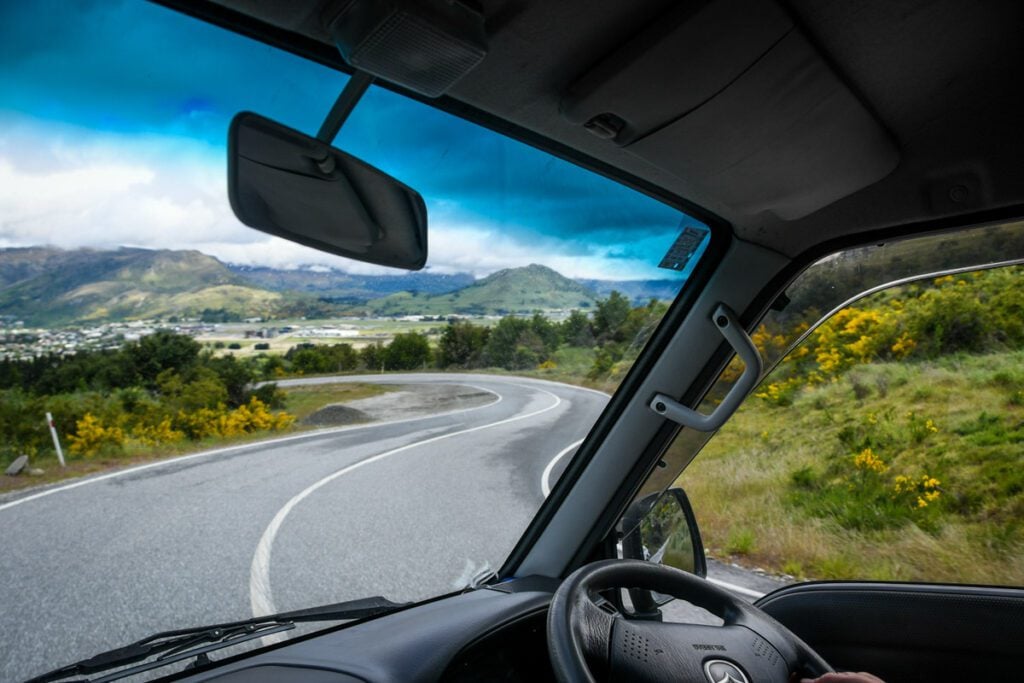
Renting a car in New Zealand is fairly straightforward, but it has a few little quirks that might surprise you, even if you’re a pro at car rentals. We put together a huge guide to New Zealand car rentals to share all our insider information with you, including things we wish we’d known before our trip.
The main advantage of renting a car (as opposed to a campervan) is that a smaller vehicle is generally easier to drive and park. And unless you’re really into campervans (like us!), you’re probably more used to driving a car and might be more comfortable with this option.
Be sure to book your rental car and any rental gear before your trip begins. And don’t forget travel insurance ! Picking a policy that covers your rental car is often cheaper than buying a separate policy through the rental company.
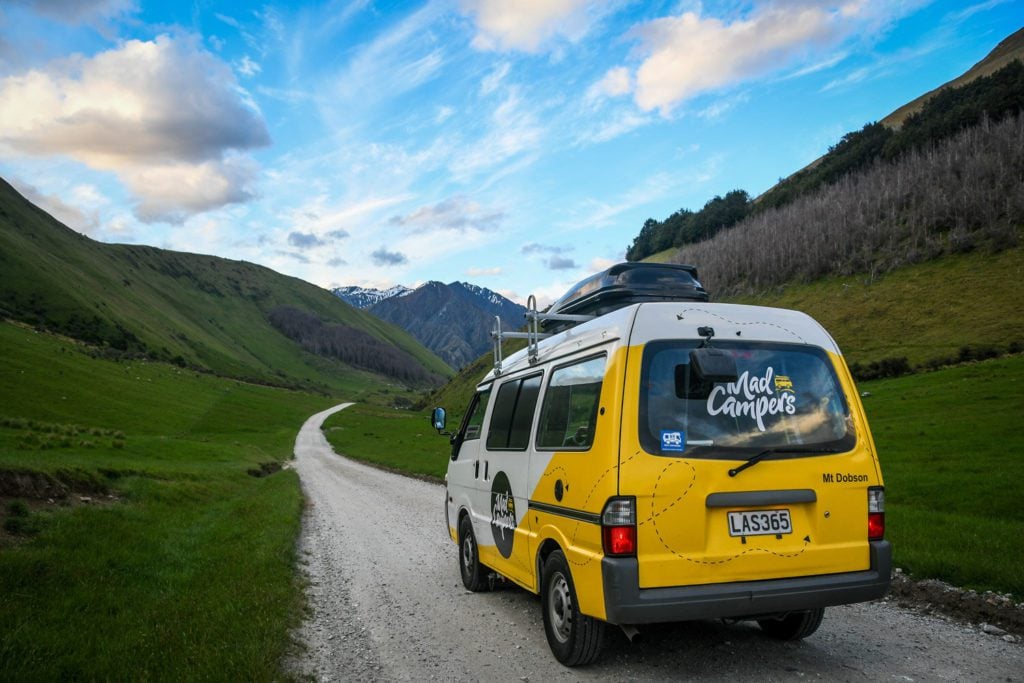
We personally traveled by campervan for 5 weeks in New Zealand and loved every minute of it! We think it’s the best way to explore this glorious country. Here are a few reasons why we love it:
- It’s easy. There are few countries in the world as well set up to accommodate campervans as New Zealand, and there are tons of places to camp (some of which are free!).
- You can save money. When you see the price tag attached to a campervan rental, you’ll probably think “Whaaat?! That ain’t cheap!” But what you have to remember is that this is your rental vehicle and your accommodations all in one!
- You can save money (again). Is there an echo in here? You can also save money in a campervan by cooking your own meals , so I think it’s worth repeating!
- It’s the adventure of a lifetime! Campervan travel adds a level of freedom even beyond driving a car, as well as experiences you won’t get at a hotel. It’s magic. Trust me.
If this got your attention, we have a guide to the best campervan rentals in New Zealand that walks you through your rental options and what to look out for. We’ve even included an exclusive discount for our readers!
We also put together a HUGE guide to planning your New Zealand campervan trip with tons of insider tips and advice. Make sure to give it a read before booking your trip!
Where to start and end your New Zealand itinerary
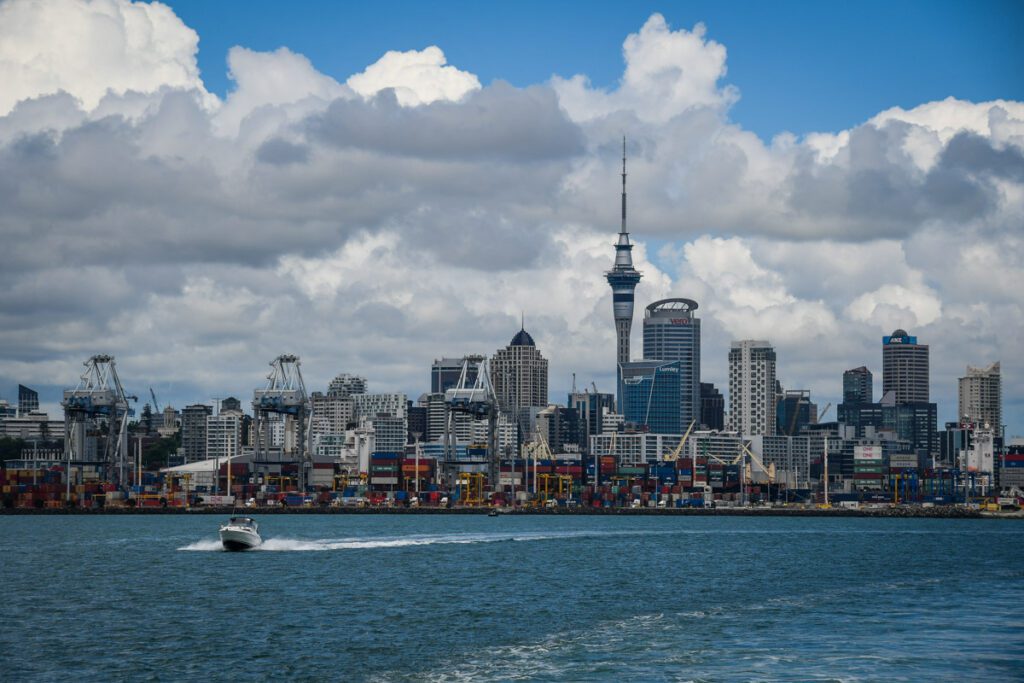
Deciding where to start and end your travels is another factor you’ll want to consider when planning the perfect New Zealand itinerary.
New Zealand has quite a few international airports – there’s one in just about every major city. So you’ll have a lot of options to choose from.
We’ve done the research, and we personally recommend starting your itinerary in Auckland .
For starters, you’ll likely fly into Auckland, since it has the biggest international airport. And as New Zealand’s largest city, you’ll find a wide selection of rental cars and campervans you can pick up in Auckland.
However, if you want to start your road trip somewhere else, Wellington, Christchurch, and Queenstown also have plenty of options for campervan pickups.
We’ve designed our 1-month New Zealand itinerary to begin in Auckland and end in Christchurch. Some rental companies will allow you to pick up and return your vehicle in different locations (sometimes for a fee). If not, you can always hightail it back to Auckland to return your rental.
Cook Strait Ferry
The Cook Strait Ferry operates between the North and South Islands in New Zealand, connecting the cities of Wellington and Picton. The ferry service provides both passenger and vehicle transportation, making it a vital link for travelers exploring both islands.
Not only is it an efficient way to get from one island to the other (especially if you are traveling by campervan or car), the ferry is an iconic journey across the Cook Strait with incredible views. Many people believe it’s the most scenic ferry crossing in the world!
How many days is enough for New Zealand?
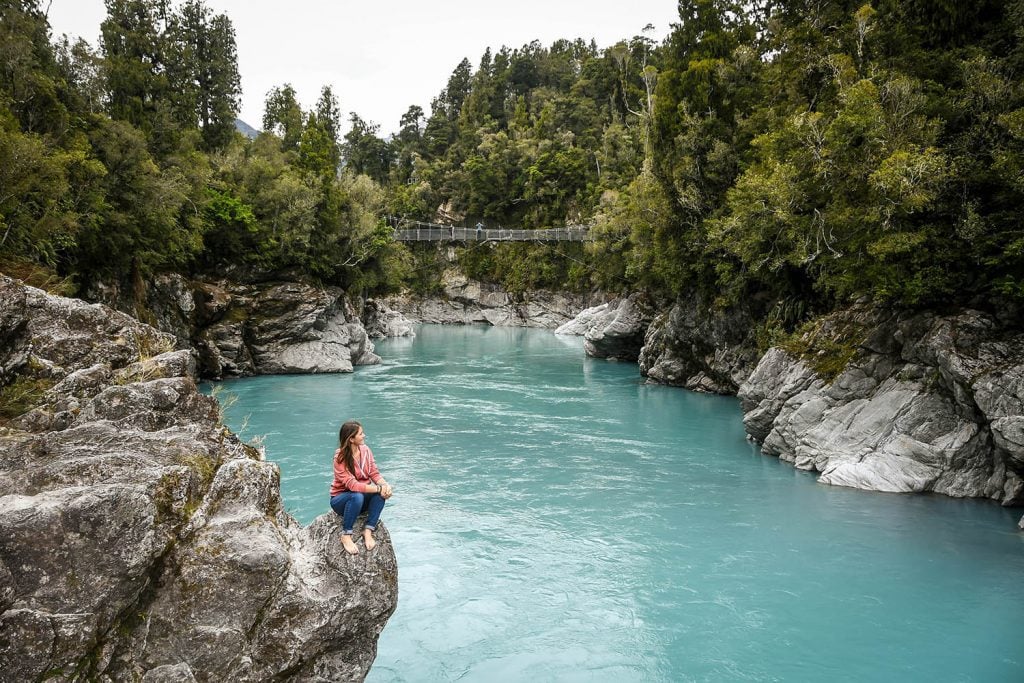
This is a tough one to answer because even a lifetime wouldn’t be enough. Seriously.
We spent 5 weeks traveling around New Zealand in a campervan, and we’ve been lucky enough to experience a lot of what this country has to offer. Even so, we still left with a loooong list of things to do “ next time ”.
That said, we do have some suggestions based on the amount of time you have to explore New Zealand:
1 Week New Zealand
If you have just one week, we recommend focusing on a specific area. Base yourself in a city like Queenstown or Auckland and plan for a couple of day trips.
2 Weeks New Zealand
Choose one island to explore. We have perfect 2-week itineraries ready-to-go for both the North Island and South Island . All the hard work is done for you!
1 Month New Zealand
We think a month is ideal for your first trip to New Zealand . With our 30-day New Zealand road trip itinerary , you’ll experience a good chunk of the country’s must-sees and hidden gems (we have lots!).
5+ Weeks New Zealand
Extra time? Even better! Our 1-month New Zealand itinerary is packed with insider tips to customize your trip , including what to add if you have more time.
What is a typical travel budget for New Zealand?
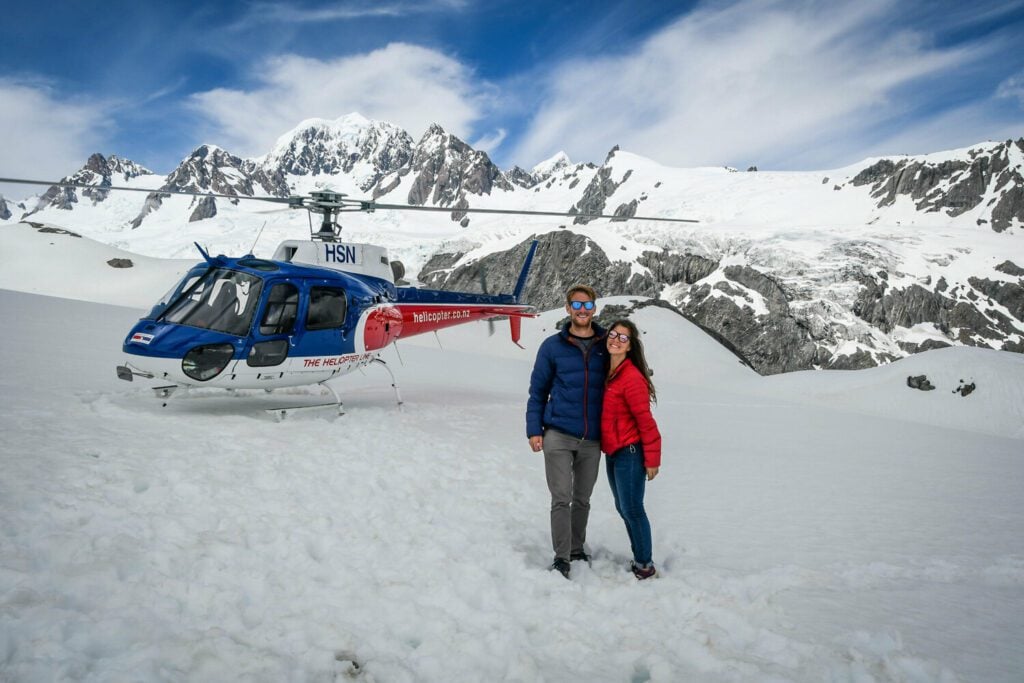
I’ll give it to you straight: New Zealand ain’t cheap. But don’t let that stop you – it is still totally possible to explore New Zealand on a budget .
If you are on a tight budget and watch your spending closely, you could get by with a daily budget of $60 – $90 per person.
If you want a few splurges and to stay in nicer accommodation, plan to budget $100 – $150.
On the other hand, you could easily blow through upwards of $200 per person per day if you book luxury hotels, eat out, and pack your itinerary with tours like bungee jumping and scenic helicopter flights.
For a more detailed breakdown, see our New Zealand travel guide .
Where to stay around New Zealand
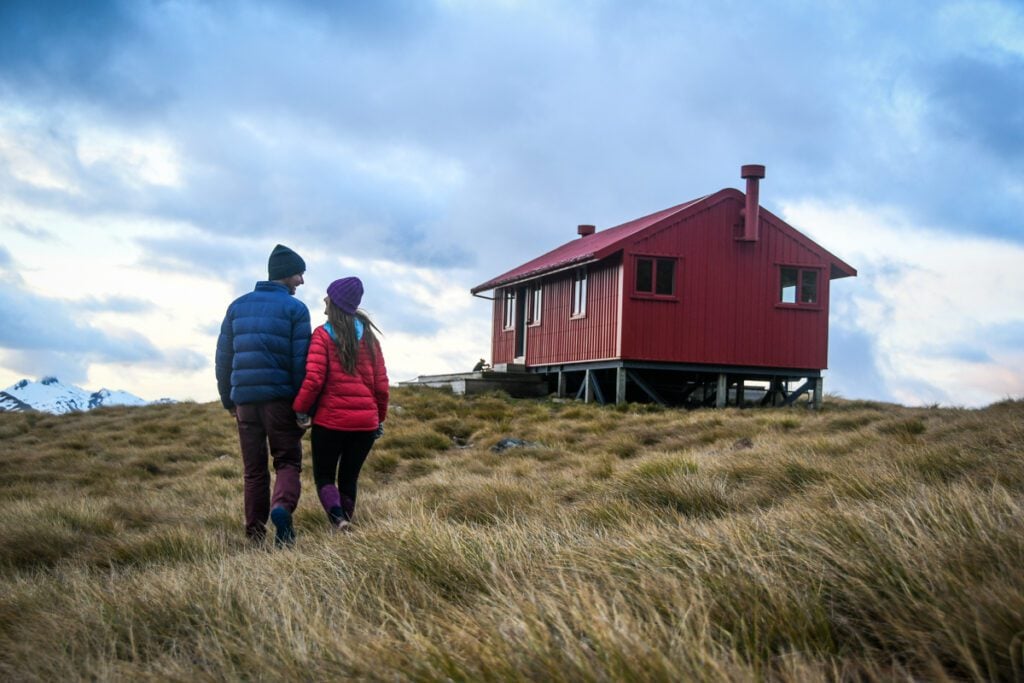
New Zealand is a developed country with lots of accommodation options. As with any destination, lodging will be more plentiful (but generally more expensive) in the city centers, and prices will be higher during peak tourist season (December to February in NZ).
Our New Zealand itinerary has options for hotel/Airbnb stays as well as campsites, so you can tailor it for your personal travel style.
From chains like Holiday Inn to boutique hotels and resorts, you can find it all in New Zealand. Hotels are usually concentrated around metropolitan centers and may not be available in some remote areas. We recommend using Booking.com to search for hotels and compare prices.
Insider Tip: Traveling on a tight budget? Use Booking.com to search and compare prices for hostels. With the exception of certain campsites, hostel dorms are usually the cheapest accommodations out there.
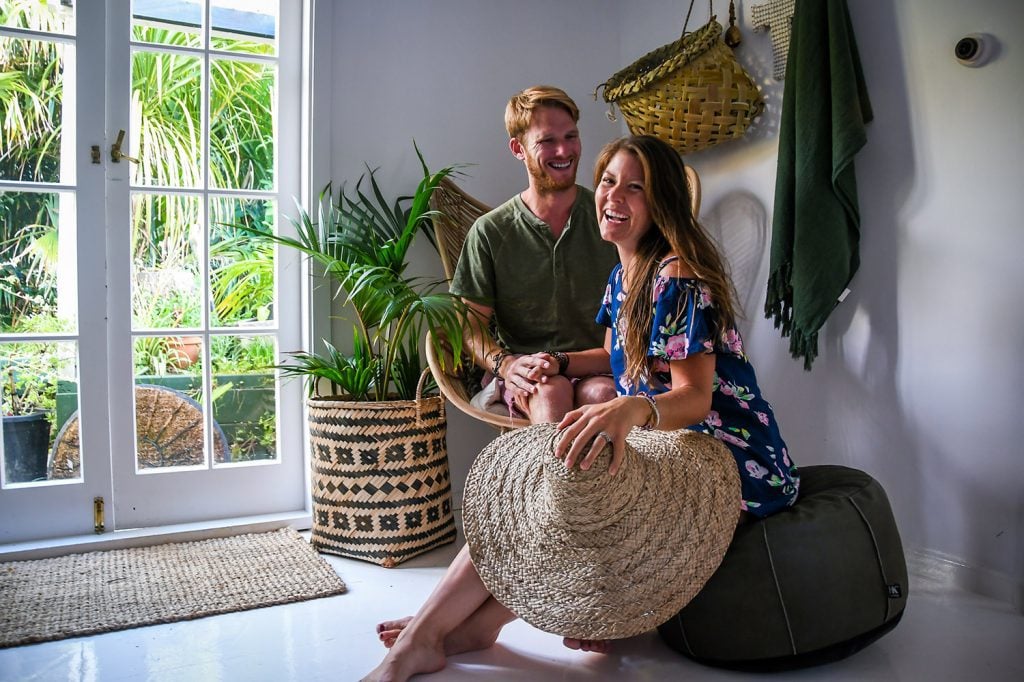
Renting an Airbnb is one of our favorite ways to get to know a place. Plus, they offer experiences you won’t get in a hotel:
- Get off the typical tourist track and experience the country from a local’s point of view.
- Stay in the suburbs or the countryside, outside of the major hotel areas.
- Enjoy perks like having your own kitchen and laundry – especially for a long-term stay.
- Psst! Read about why we prefer Airbnbs over hotels when traveling with a baby.
- Save money!
- Find unique stays, like this rainforest retreat near Auckland .
Never booked an Airbnb before, or worried about getting a dud? No sweat – we have Airbnb basically down to a science. We even created a whole guide to booking Airbnbs where we share all our tried and true secrets to ensure a great experience.
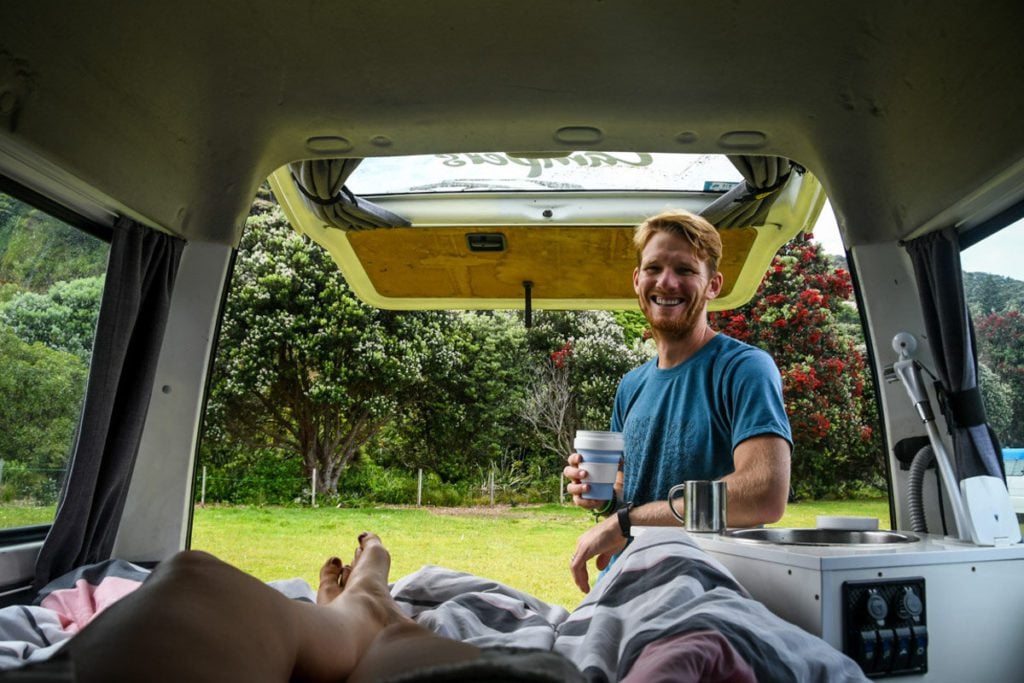
There are all types of campgrounds in New Zealand, from totally free to pretty pricey (like $70 NZD per night), from unmaintained sites to holiday parks with hot showers, BBQs, and all the frills. And then there’s everything in between.
New Zealand campsites are also quite different from those in North America. Most of the camping in New Zealand is more or less a field where campervans have space to park.
We know how overwhelming it can be to sift through tons of campsites while trying to decipher unfamiliar jargon (what exactly is a “holiday park?!”). So we created a New Zealand camping guide , complete with a rundown of the rules and a map of the best campsites in the country.
Our perfect New Zealand itinerary
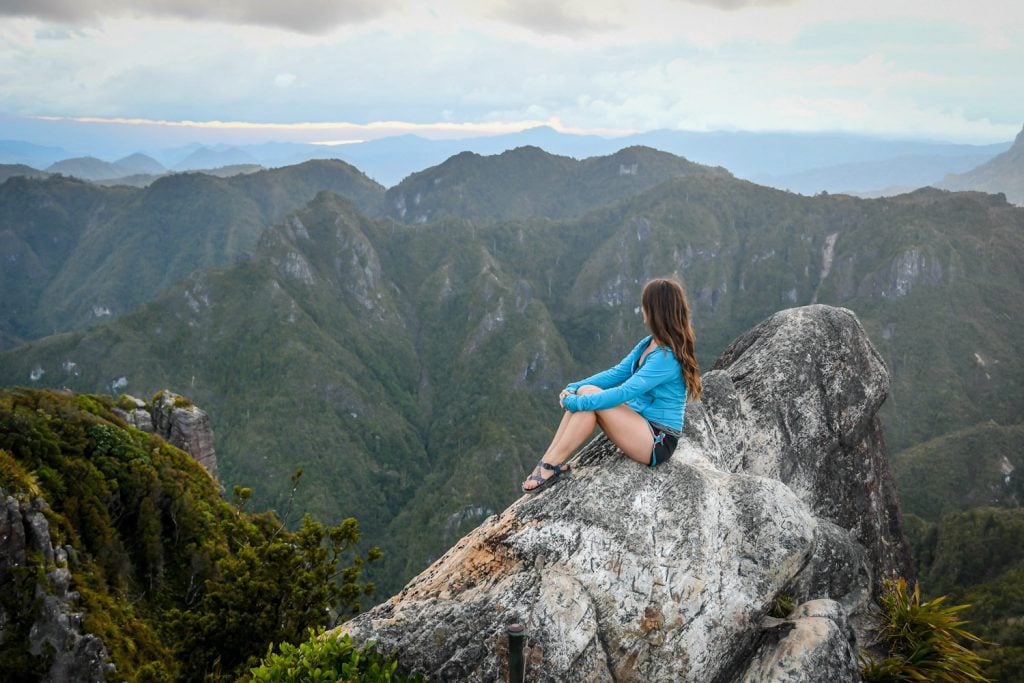
Countless hours were spent researching our route for New Zealand. We pored over article after article. We talked to Kiwis and asked for their local advice. And we finally came up with a plan.
All our research paid off: We had an incredible road trip! So, we’ve taken our road trip route and made it even better for you.
We took our 5-week travels and condensed it down to 30 days (because so many people wanted a 1-month route) that hits the top destinations on both the North and South Islands . We added some things we wish we would have made it to and we altered a couple things here and there that we wish we would’ve done differently.
This New Zealand itinerary is set up to be done as a campervan road trip . However, you can also follow this route if you’re traveling with a rental car and staying at hotels or Airbnbs along the way.
Important Note: One thing to know about traveling in New Zealand is you’ll need to be flexible. The weather in this country can be highly unpredictable (especially on the South Island), and a day of heavy rain or a surprise snowfall might derail your plans of hiking or bungy jumping. We would highly recommend having some “flex days” so you can alter your plans if you encounter weather that is not ideal. Trust us on this one.
Highlights of our New Zealand itinerary
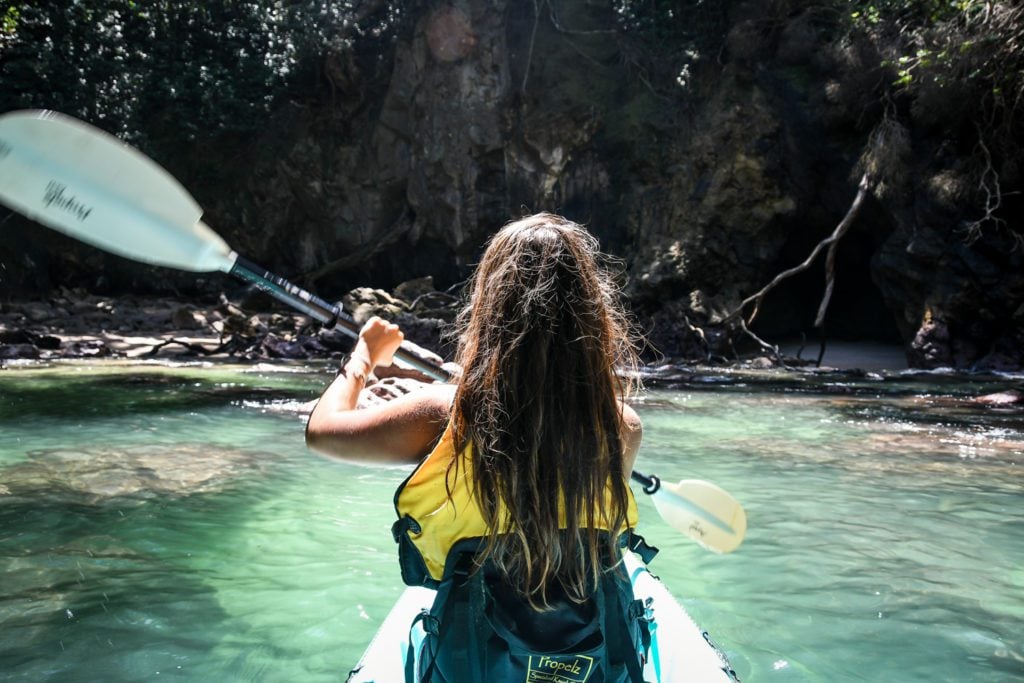
Below are some of the can’t-miss things to do in New Zealand that we’ve included in our epic one month itinerary.
- Discover Auckland and Waiheke Island
- Hike to Pinnacles Hut and witness the sunrise over the Pinnacles
- Explore the beaches on the Coromandel Peninsula
- Sea kayaking to Donut Island and camping on the beach
- Take the Hobbiton movie set tour
- Hiking in and around Rotorua and Lake Taupo
- Trek the Tongariro Alpine Crossing
- Eat and drink your way through Wellington
- Swim with dolphins (ethically!) in Kaikoura
- Wine tasting in Marlborough
- Explore Abel Tasman National Park
- Go rafting through a glowworm cave
- See Pancake Rocks
- Get up close and personal with Franz Josef Glacier
- Drive the beautiful Haast Pass
- Hiking around Wanaka
- Adventure activities in Queenstown
- Cruise Milford Sound
- Enjoy the laid back but incredibly scenic Key Summit hike
We’ve spent hours of research putting this all together, just for you!
In full transparency, this is a paid itinerary since it has taken an incredible amount of time for us to create.
However, we keep all of our paid itineraries affordable – just $15 for an entire 1-month itinerary. We think this is an extraordinary value considering almost all your planning will be done for you!
If you don’t have enough time to do both islands, we broke down our full itinerary into separate itineraries in the following articles:
- North Island Itinerary
- South Island Itinerary
Booking your New Zealand trip
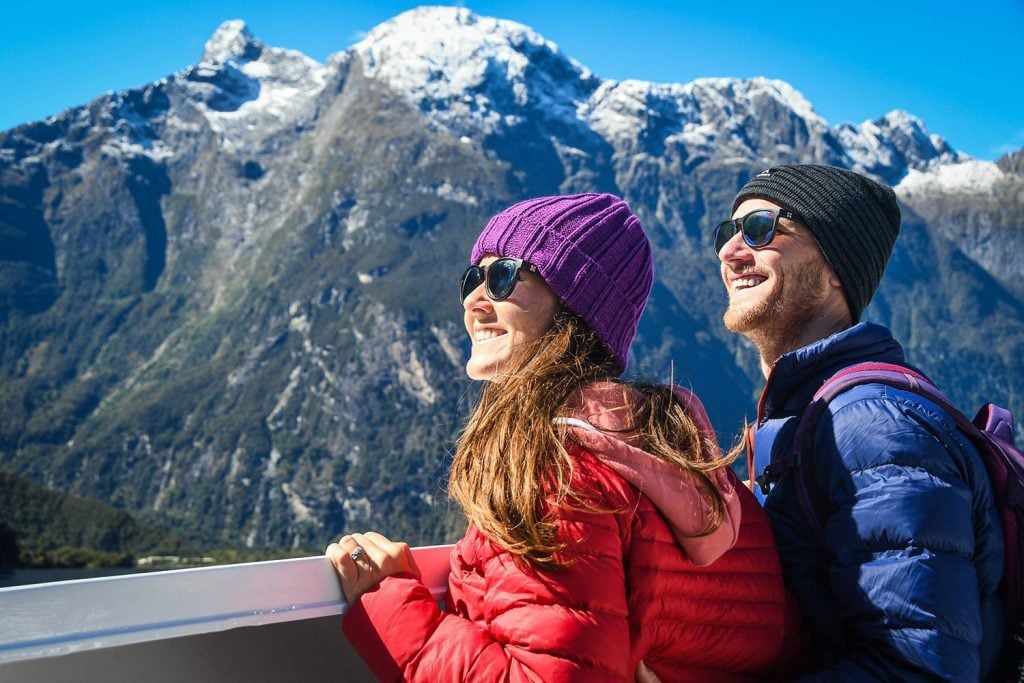
We have a handful of go-to resources that we use when planning nearly all our trips. Here are the platforms we use to book our most basic travel needs:
- Flights: Skyscanner
- Campervan rentals: Motorhome Republic
- Rental cars: Discover Cars
- Hotels: Booking
- Unique accommodations: Airbnb
Don’t forget about travel insurance!
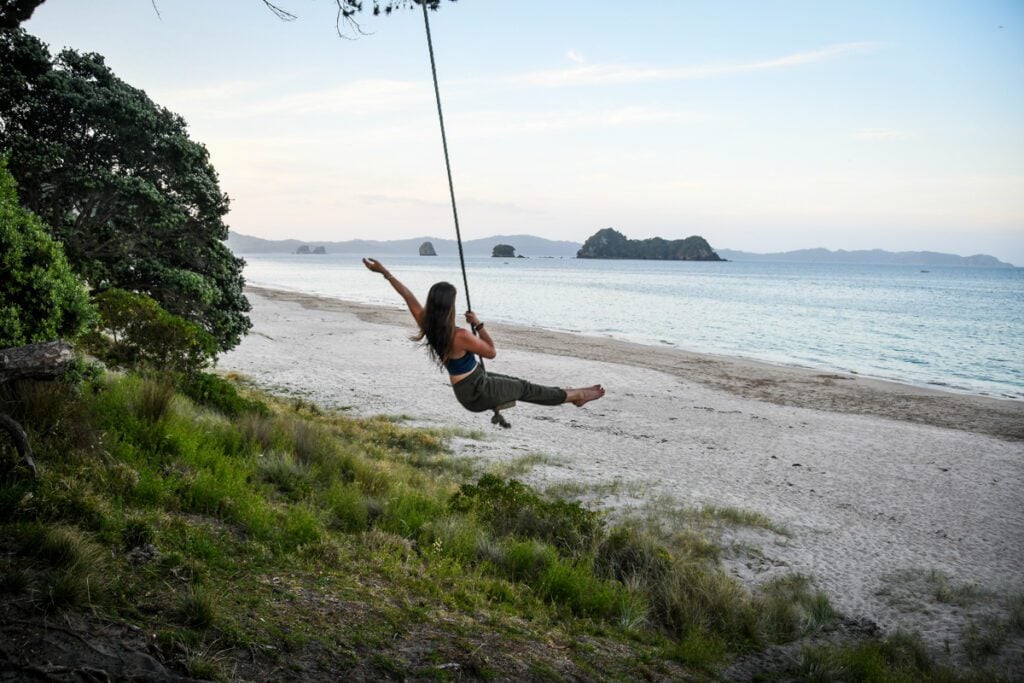
Hold up – don’t even think about getting on a plane without this! Travel insurance is just as important as your passport and, contrary to popular belief, it is not expensive.
We know a lot of people will forego this step simply because they get too overwhelmed by all the options.
Please don’t do that!
We made a comprehensive guide to travel insurance to help you out. We share which companies we use and what policy details to look for when you go over your travel insurance comparison.
Our recommendation:
Our personal pick for travel insurance is SafetyWing . Their policies are geared toward frequent travelers and digital nomads, and they’re one of the few providers who have coverage for Covid-19.
What sets SafetyWing apart is their emphasis on flexibility and adaptability . Unlike traditional insurance policies with fixed durations, SafetyWing’s coverage is designed to be subscription-based, allowing travelers to pay on a monthly basis and enjoy continuous protection while on the move.
New Zealand itinerary planning resources
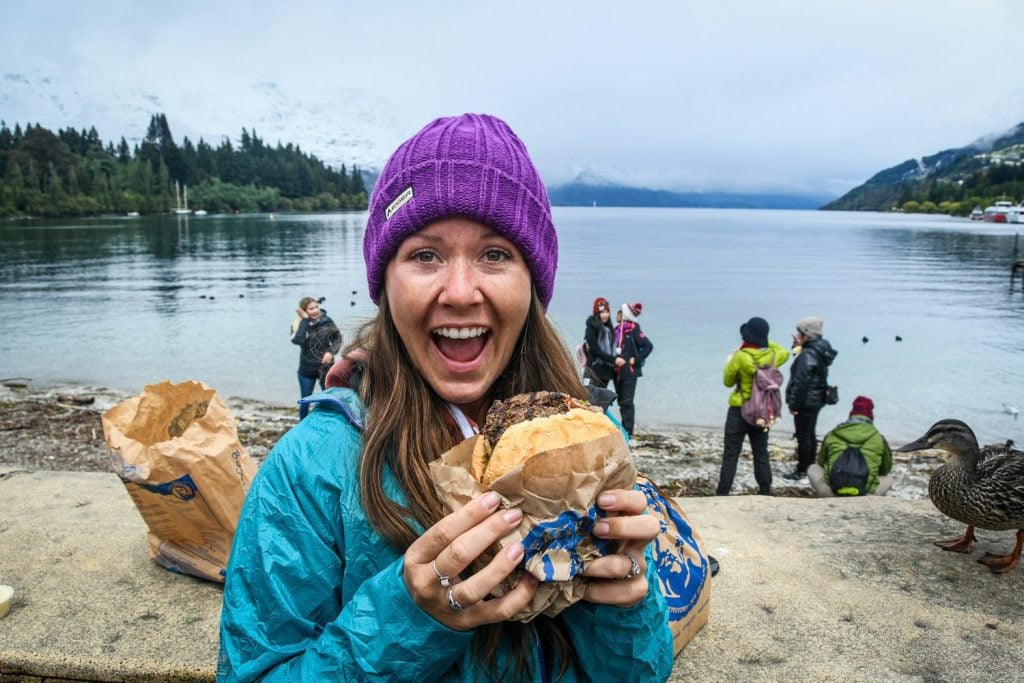
We have TONS of resources for planning your trip in our New Zealand travel guide . Below are some of our top recommended articles for New Zealand itinerary planning…
- Things to Know Before Traveling in New Zealand
- Exciting Things to Do in New Zealand on Your First Visit
- New Zealand Travel on a Budget + Money-Saving Tips
- Best Time to Visit New Zealand: When to Go & When to Avoid!
- Ultimate Guide to Planning Your New Zealand Campervan Trip
- Best Campervan Rentals in New Zealand
- Best New Zealand Campsites: Ultimate Guide + Map
- Car Rental in New Zealand: Essential Guide + Tips
- Incredible New Zealand Hikes + Local Tips
- Best New Zealand Foods to Try (& what to skip!)
Be sure to download our complete packing list for New Zealand ! It’s full of good suggestions and insider tips to help plan your campervan trip in New Zealand. And it’s completely FREE , so why not!?
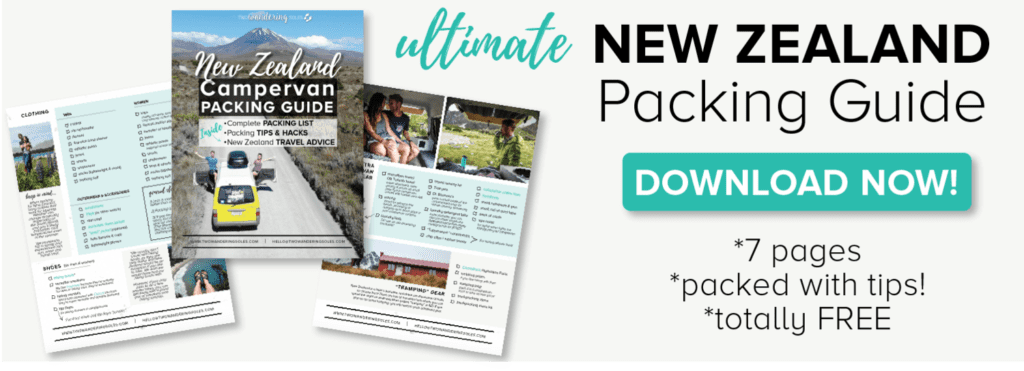
Want your itinerary planned for you?
- Perfect 1 Month New Zealand Itinerary
- South Island New Zealand Itinerary: Epic 2-Week Road Trip
- North Island New Zealand: 2-Week Road Trip Itinerary
Save this article on Pinterest for later!
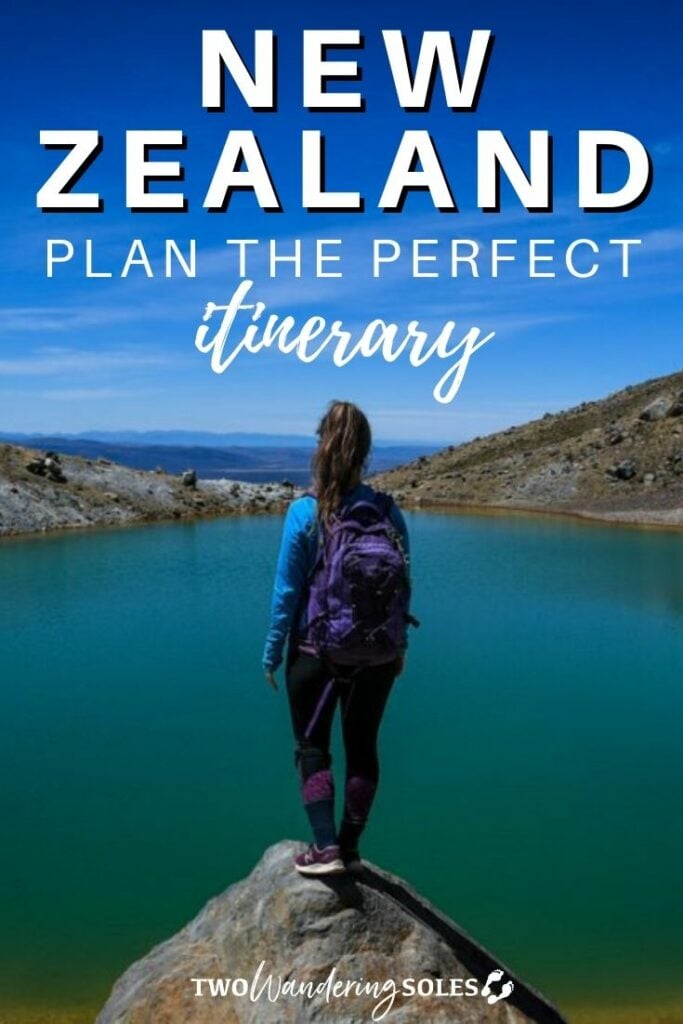
We want to hear from you!
Are you planning your own perfect New Zealand itinerary and still have questions? Let us know in the comments below and we’ll do our best to get back to you!
Comment (1) on “ How to Plan the Perfect New Zealand Itinerary ”
Great article! I am thinking of a two month New Zealand trip next year, in October, November, and December. Will probably fly into Auckland and spend about three weeks to a month road tripping the North Island. Then will go down to the South Island and spend about a month to five weeks road tripping before going back up to Auckland and flying home. How is the weather in the North island during mid October to mid November? Will I be able to hit up beaches? Also, is mid November to mid December a good time to see lupins on the South Island? What would be the ideal (female) packing list during this time? Thanks in advance!
P.S Hope you enjoyed your Arizona hike! Can’t wait to hear about it!
Leave a Reply Cancel reply
Your email address will not be published. Required fields are marked *
Save my name, email, and website in this browser for the next time I comment.

Smart Travel
Embrace the adventure

Smart travel – Embrace the adventure
Smart t ravel – embrace the adventure .
Whether you’re looking for the best work commuter options, things to do in Queenstown with kids, or trying to figure out if Lupin Lake Tekapo really is the most beautiful nz destination, Smart Travel can help you make it happen.
We’ll help you find the best travel ideas, the best routes, and the best way s to get there by helping you to travel smartly. On top of that, we’ll help you make climate friendly transportation options , so that you can travel stress-free .
What does it mean to travel smart ?
While travelling is at the top of many people’s bucket list, it can also be intimidating and scary. There is a large range of decisions to be made: whether to travel alone or with s omeone , where to travel, what to pack, what to visit, etc. Preferably, as travel is by nature expens ive , it should also be done on a budget. That is where smart travel comes in.
Smart travel is all about finding the right tools to create a smooth and sustainable trip , whether your destination is your office or an awaiting adventure . This can be done by reading packing hacks, learning which travel insurance is best, as well as find the cheapest means of transportation.

Going on an NZ Roadtrip
Are you in the mood for an adventure? Why not make a smart road trip through New Zealand?
New Zealand is famous for its gorgeously diverse natural sightseeing opportunities. As a result, it’s a most appropriate place for a NZ road trip. Furthermore, it’s a great way to build new relationships or deepen existing ones by creating an experience you’ll never forget. Plus, it can be more affordable than flying or taking a bus, and you can go at your own pace.
By following our travel planning guides, the entire country can become your playground. Explore ou r website to find the best road trip destinations New Zealand and more.
Are you an i nternational traveller?
If you are an international traveller who is looking to road trip your way around the northern and southern islands, there are a few transport facts to remember when planning your trip.
For example, New Zealand engages in left side driving. Furthermore, the country does not specialize in motorway systems. Rather, these types of roads are limited to city areas whereas a lot of the country is connected by two-way single file roads with winding and steep landscapes.
As a result , it’s important to calculate your timing with some extra margins, rather than being time optimists for long distance trips.
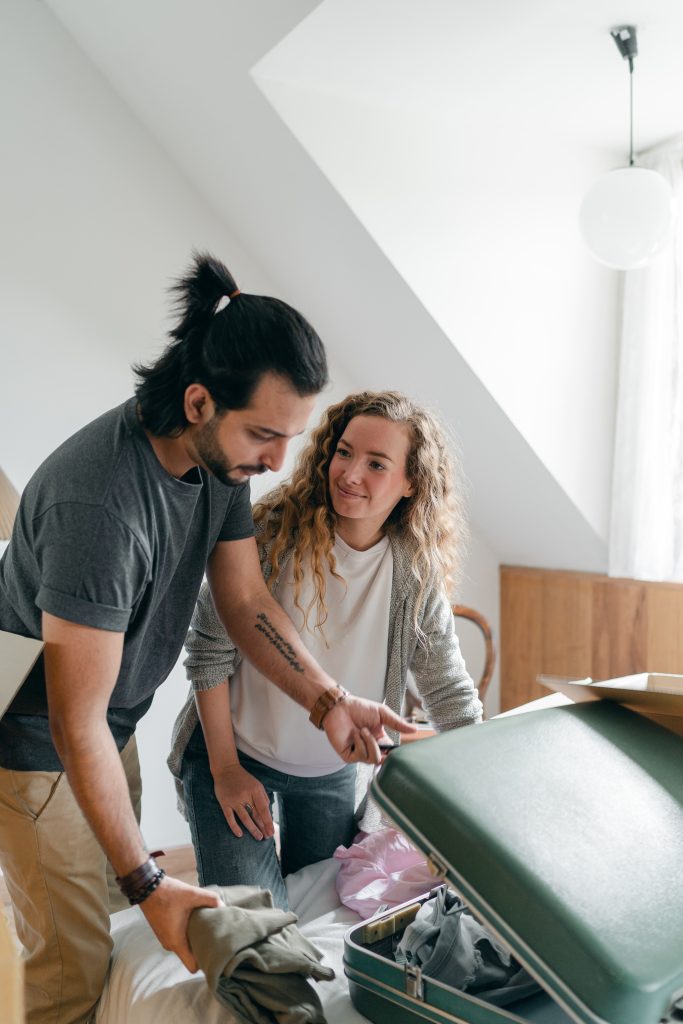
Travel Planning
It is not unusual for people arranging trips to experience travel planning nervousness. Although this can be one of the most fun parts of a trip as you explore what there is to see and pick your preferences, there are many factors to consider in order to make a trip come together.
Luckily, there is a plethora of easily accessible tools and tricks to make the process easier. For example, there are tools such as a mileage calculator or a fuel cost calculator may come in handy, as well as a large range of other planning tools.
Our guides can help you with large scale planning, such as travel itineraries and packing lists, as well as exploring transportation options and money saving trip-tips.
Q uick smart travel tips
To ensure that your travel is as smart and smooth as you want it to be, there are some things to consider before you start your smart lifestyle . Here are a few tips to get you started:
Read reviews, compare prices, and check out photos before you book anything. This will help you avoid any surprised when you arrive at your destination or meet-up spot.
The sooner you start planning, the better. This will give you more time to research and make sure you are getting the best deal on transportation and accommodation. If you are looking at carpooling options, this will also give you time to look at back-up plans just in case.
Decide how much you are willing to spend on your trip. This will help you narrow down your options and find the best deals.
If you are flexible with your travel dates, you may be able to find better deals. For example, this will give you less stress in case something were to come up or not go as planned, such as a cancelled car-share.
If you are used to driving on your own, changing your transport to a smart car sharing option might feel intimidating. However, if you see it as a fun adventure rather than a chore, it is guaranteed to make you more excited for your day.
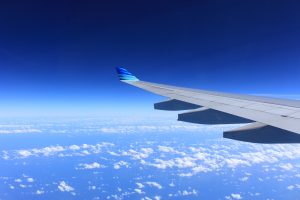
The Ultimate Guide to Booking a Hotel in New Zealand: From Trivago NZ to Best Practices and Smart Choices
Booking a hotel can be a daunting task for both first-time travellers and experienced globetrotters

Willowbank Wildlife Reserve: A New Zealand Treasure
Nestled in Christchurch, New Zealand, Willowbank Wildlife Reserve is a must-visit destination for wildlife enthusiasts
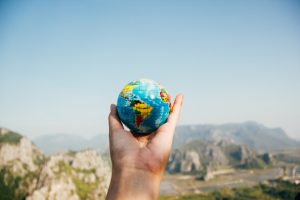
Eco Travels – the top booking agency in ChristChurch, NZ
Eco Travels Christchurch distinguishes itself as a top-tier travel service provider in Christchurch, NZ. As
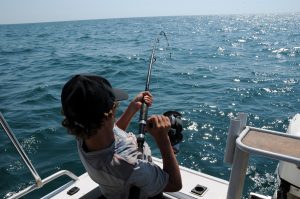
Hook, Line, and Sinker: Guide to Marine Deals for Travellers in New Zealand
Picture this: you’re standing on the shores of a pristine New Zealand beach, casting your

Auckland Night Market: The Kiwi Way of a Staple Night-out
Bright lights denying the fact that it’s night-time, bustling crowds looking to lose the work
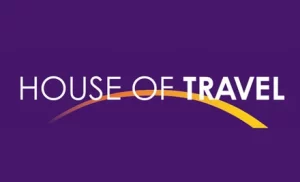
House of Travel – all you need to know about the NZ travel agency
Are you looking for hassle-free way to explore the world? One of the most popular

Experience the Iconic Naumi Studio Hotel Wellington: Perfect Stay for Couples and Tourists
When it comes to hotels in Wellington, New Zealand, there are plenty of options available,

Why Airbnb is the Ultimate Choice for Smart Traveling in New Zealand
Air bnb has revolutionized the way people travel around the world. It has become a
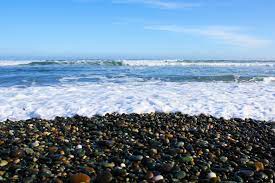
Treasures at the amazing Gemstone Beach NZ
Looking for an easy Saturday adventure? Make sure to visit Gemstone Beach and explore the beautiful nature!

Yogiji Food Mart – Smart food planning for backpackers and tourists
Food planning is essential to travellers in NZ. So how can Yugiji Food Mart make your trip easier? Learn more here.
Travellers flying to New Zealand can now do their arrival declaration online
22 August 2023
Travellers arriving into all New Zealand international airports now have the option to complete a digital declaration instead of a paper arrival card, before travelling to New Zealand.
Travellers flying to New Zealand can now do their arrival declaration online – New Zealand Customs Service
Last updated: 22nd August 2023
- Chubb Globally
- Chubb General Insurance
- Chubb Life Insurance
- Chubb Corporate News
- Chubb General Insurance News
- Chubb Life Insurance News
Chubb travel smart

Chubb Travel Smart is an innovative digital platform that enhances Chubb’s Group Business Travel Accident insurance product. It is targeted at corporations and conglomerates from all industries.
Benefits for employers
It has been developed to help employers better fulfil their duty of care obligations to their travelling employees by:
- Using an online dashboard that monitors travel disruptions in real-time, HR and risk managers are able to track and locate their travelling employees when the disruptions occur
- Alerting them of the disruptions/incidents through push notifications and SMS so that they stay safe and secure.
- Once notified, travelling employees in the affected areas are able to access 24/7 emergency assistance at a touch of a button via an app.
Benefits for travelling employees
Chubb Travel Smart empowers travelling employees with the information and tools so that they travel with confidence with:
- An app built specially for Apple and Android smartphones to be downloaded prior to their trips.
- Be better prepared for their trips by learning the health and safety risks of their destinations. Take travel precautions in advance such as vaccinations and high crime areas to avoid.
- push notifications for non-emergency alerts
- SMS for emergency alerts coded RED.
- Access 24/7 emergency assistance at a touch of a button to receive advice and assistance.
This content is brought to you by Chubb Insurance New Zealand Limited (“Chubb”) as a convenience to readers and is not intended to constitute advice (professional, financial or otherwise) or recommendations upon which a reader may rely. Any references to insurance cover are general in nature only and may not suit your particular circumstances. Chubb does not take into account your personal objectives, financial situation or needs and any insurance cover referred to is subject to the terms, conditions and exclusions set out in the relevant policy wording. Please obtain and read carefully the relevant insurance policy before deciding to acquire any insurance product. A policy wording can be obtained at www.chubb.com/nz-en through your broker or by contacting any of the Chubb offices. Chubb makes no warranty or guarantee about the accuracy, completeness, or adequacy of the content. Readers relying on any content do so at their own risk. It is the responsibility of the reader to evaluate the quality and accuracy of the content. Reference in this content (if any) to any specific commercial product, process, or service, and links from this content to other third party websites, do not constitute or imply an endorsement or recommendation by Chubb and shall not be used for advertising or service/product endorsement purposes. ©2020 Chubb Insurance New Zealand Limited Company No. 104656 FSP No. 35924. Chubb®, its logos, and Chubb.Insured.SM are protected trademarks of Chubb.

Interested in this Chubb policy?
Have a question or need more information? Contact us to find out how we can help you get covered against potential risks

Contact Us Now
- Destinations
- Experiences
- Specialists
Travelsmart website has moved

Whatever your travel dream is, we want to hear about it, because like you, we love to dream about where we might travel to next. There's something special about planning a holiday and our number one priority is to fulfill clients' dreams.
To make the most of your holiday, good planning and the backup of a solid travel professional are essential elements. We will provide you with peace of mind through a well-planned holiday with top-quality products.
The Travelsmart brand has been in operation in New Zealand since 2001 fulfilling the travel dreams of New Zealanders. Travelsmart is a retail travel brand where the travel agency owner works in the business providing you, the customer, with the satisfaction of knowing your business is valued.
You have been redirected to the Travel Managers Group website, which the Travelsmart Group is operating within, providing stability and volume purchasing across a range of travel providers, including Airlines and other wholesale partners, so it is a natural progression for the Travelsmart Group to integrate with Travel Managers Group.
You can still find the same great offers and information about the Travelsmart stores on here so you can browse around as you usually would.
From the team at Travelsmart
There are no packages at the moment.
- Terms & Conditions
- Broker's Login
- Privacy Policy
- Cookies Policy
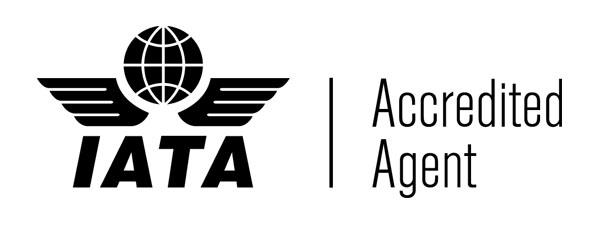
Level 5, 124 Vincent Street, Auckland

COMMENTS
While cases in New Zealand are rare because endemic measles has been eliminated here, the disease is regularly brought into the country through international travel. There are currently significant measles outbreaks overseas including in India, Indonesia, Pakistan, Afghanistan, Cameroon, Democratic Republic of Congo, Ethiopia, and Somalia.
We encourage all New Zealanders travelling or living overseas to register their details on SafeTravel. This allows us to send you important information following an emergency situation, or to provide consular assistance, while you are overseas. Just like making sure you've had the right immunisations and vaccinations and that you have ...
All of New Zealand's coastline is at risk of a tsunami. Know the tsunami warning signs and move to high ground immediately. Don't wait for official alerts. New Zealand has several active volcanoes. Volcanic alert levels may rise quickly. You may be ordered to evacuate at short notice.
Find a travel advisory using the alphabetical list below. Register/update travel plans Subscribe to travel advisories. ... New Zealand embassy locator; Ministry of Foreign Affairs and Trade 195 Lambton Quay Private Bag 18 901 Wellington 5045 New Zealand. New Zealand Foreign Affairs & Trade.
COVID-19 safety practices in place. With COVID-19 case numbers falling, a highly vaccinated population, and increased access to antiviral medicines to treat COVID-19, New Zealand has removed most COVID-19 restrictions. It is still recommended to practice healthy habits when travelling around New Zealand. Practice healthy habits.
Unpaid fines. If you have unpaid fines and try to leave or come into New Zealand, the police can stop you at the airport. You will be allowed to pay by credit card over the phone with a registrar. If you're travelling in the next 48 hours and you have fines or reparation you have not paid, call 0800 729 677 to pay with your credit card.
Completing your declaration is free. Everyone entering New Zealand needs to submit a declaration. You can do it on the online form or the NZTD app, using your phone or computer. For air travellers, the earliest you can submit your declaration is 24 hours before you start your trip to New Zealand.
SafeTravel is the official source of travel advice for New Zealanders, with advisories for specific destinations. Checking SafeTravel helps you avoid travel blackspots. ... New Zealand Foreign Affairs & Trade | Manatū Aorere. 195 Lambton Quay, Private Bag 18 901, Wellington 6160, New Zealand. Phone +64 4 439 8000. Find all Ministry contacts.
Valid passport. You must have a valid passport to enter New Zealand. Check its expiry date to make sure it meets the rules for acceptable travel documents. If you are a New Zealand citizen and you need to renew your passport, make sure you allow plenty of time before you travel. Renew or replace your adult passport - Te Kāwanatanga o ...
You also need to declare medicines, tobacco, alcohol and if you are carrying NZ$10,000 or more cash (or equivalent) into New Zealand. Your travel declaration is a legal document. False declarations can lead to penalties including confiscation of goods, a minimum instant fine of NZ$400, prosecution, imprisonment, and deportation from New Zealand.
From 11:59pm (New Zealand standard time) 12 September 2022, travellers to New Zealand no longer need to provide proof of COVID-19 vaccination to enter the country. Everyone travelling to New Zealand by air must complete a New Zealand Traveller Declaration, and receive a Traveller Pass, before they travel. This includes New Zealand citizens and
Climate: New Zealand has a diverse climate determined by the ocean, mountains and prevailing winds. The mean average temperatures are 10°C (50°F) on the South Island to 16°C (61°F) on the North Island. See The Guide to The New Zealand Climate or check out the " When to Visit " section below. Population : 5 million.
If accompanying family members do not travel on a New Zealand passport ensure they have a valid visa for possible onward travel to New Zealand. ... NEMA have also prepared a smart phone application (for both Android and Apple) that details nearest emergency shelters. ... New Zealand Foreign Affairs & Trade | Manatū Aorere. 195 Lambton Quay ...
But don't let that stop you - it is still totally possible to explore New Zealand on a budget. If you are on a tight budget and watch your spending closely, you could get by with a daily budget of $60 - $90 per person. If you want a few splurges and to stay in nicer accommodation, plan to budget $100 - $150.
That is where smart travel comes in. Smart travel is all about finding the right tools to create a smooth and sustainable trip, whether your destination is your office or an awaiting adventure. This can be done by reading packing hacks, learning which travel insurance is best, as well as find the cheapest means of transportation.
Biosecurity New Zealand ramps up for school holidays Kick off your travel on the right foot! New Zealand paper arrival card goes digital Revised border measures to combat foot and mouth disease threat FIFA Women's World Cup travellers encouraged to apply for a Visitor Visa
Learn how Chubb Travel Smart helps employers better fulfil their duty of care obligations to their travelling employees, allowing travelling employees to travel with confidence. ... by Chubb and shall not be used for advertising or service/product endorsement purposes. ©2020 Chubb Insurance New Zealand Limited Company No. 104656 FSP No. 35924 ...
Travelsmart New Zealand, Auckland, New Zealand. 834 likes · 3 were here. Travelsmart can provide the best flight options, cruise holidays and smart package deals worldwide. ...
To make the most of your holiday, good planning and the backup of a solid travel professional are essential elements. We will provide you with peace of mind through a well-planned holiday with top-quality products. The Travelsmart brand has been in operation in New Zealand since 2001 fulfilling the travel dreams of New Zealanders.
New Zealand announced it has tightened its visa rules, introducing language and skill criteria and shortening work permit lengths in response to "unsustainable net migration." The changes to ...